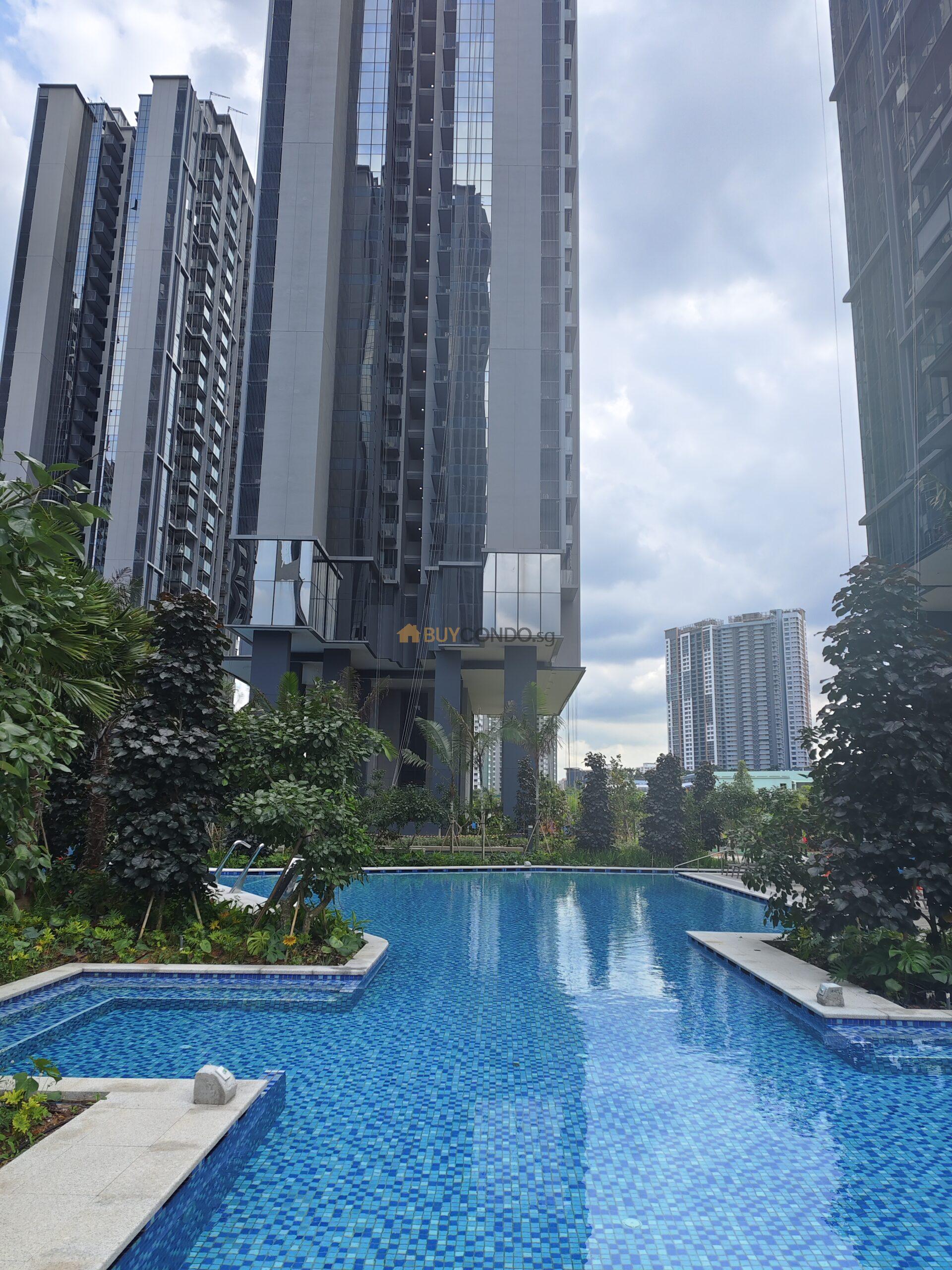The post Hiring a Property Lawyer in Singapore appeared first on Wing Tai Holdings Singapore.
]]>Hiring a Property Lawyer in Singapore: Learn about the crucial role of property lawyers in real estate transactions and how to find a reliable lawyer, while also understanding the cost considerations and additional costs to be mindful of.
The Crucial Role of a Property Lawyer in Real Estate Transactions
In Singapore, property lawyers play a pivotal role in a wide range of real estate transactions, encompassing the purchase, sale, and leasing of properties. They provide indispensable legal guidance and support throughout the entire process, from the initial stages of drafting and negotiating purchase agreements to the crucial task of reviewing title documents and conducting due diligence. An example of this is when a property lawyer ensures that all necessary checks and searches are conducted to verify the legal ownership of the property, any existing encumbrances, and compliance with zoning and land use regulations. This meticulous approach is essential in safeguarding the parties’ interests in the transaction.
In addition to their involvement in purchase agreements, property lawyers also offer valuable expertise in addressing property disputes and navigating environmental regulations. For instance, they can provide legal representation and advice in cases of boundary disputes, working to resolve conflicts through negotiation or litigation. Moreover, in situations involving environmental regulations, such as contamination issues or land use restrictions, property lawyers offer crucial guidance on compliance with environmental laws and regulations, ensuring that the property transaction proceeds in accordance with legal requirements. This multifaceted role underscores the significance of property lawyers in upholding legal compliance and protecting the interests of individuals involved in real estate transactions.
Furthermore, it’s important to highlight the expertise of property lawyers in advising on taxes and duties involved in property transactions. For example, they can offer insights into the financial implications of real estate endeavors, ensuring that their clients understand the tax obligations and duties associated with their property transactions. This comprehensive approach helps clients make informed decisions and navigate the financial aspects of their real estate transactions effectively.
 Finding a Reliable Property Lawyer in Singapore
Finding a Reliable Property Lawyer in Singapore
When it comes to finding a reliable property lawyer in Singapore, individuals need to begin by understanding their specific legal requirements and the reason for seeking legal assistance. Whether it involves property purchase, lease agreements, or dispute resolution, clearly understanding the specific legal needs is essential to identify the most suitable legal representation. Once the specific requirements are identified, individuals can access a list of law firms or lawyers from the Law Society of Singapore, ensuring that they engage with licensed and regulated legal professionals.
Arranging an appointment with potential property lawyers is a crucial step in the process of finding reliable legal representation. During these meetings, individuals can request a briefing on the lawyer’s expertise in property law and their experience in handling similar cases, providing insights into the lawyer’s approach, communication style, and overall suitability for their legal requirements. For instance, individuals can inquire about the lawyer’s track record in handling property transactions and their familiarity with relevant laws and regulations in Singapore.
Individuals can streamline the process of identifying and engaging a property lawyer who is well-equipped to handle the intricacies of real estate transactions, thereby ensuring effective legal representation and guidance. This can significantly alleviate the challenges of finding reliable legal representation and give individuals the confidence that experienced professionals are addressing their legal needs.
Expanding the search for a reliable property lawyer can involve leveraging additional resources such as legal forums, professional networks, and referrals from trusted sources. By seeking recommendations from individuals who have previously engaged property lawyers, individuals can gain valuable insights into potential legal representatives’ capabilities, approach, and reliability. This comprehensive approach helps individuals make well-informed decisions when selecting a property lawyer in Singapore, ensuring that their legal needs are met with the highest level of professionalism and expertise.
Cost Considerations When Hiring a Property Lawyer
When considering the costs associated with hiring a property lawyer in Singapore, it’s crucial for consumers to be mindful of potential overcharging by legal professionals. Various factors can influence the fees charged by property lawyers, including office overheads, the size of the firm, and the experience of the lawyer. By understanding these factors, individuals can gain insight into the rationale behind the fee structures and make informed decisions when selecting a property lawyer based on their budget and the complexity of their legal requirements.
In addition to understanding the factors that affect fees, individuals seeking legal assistance should also have a clear understanding of the typical costs associated with hiring a property lawyer. This includes being aware of the hourly fees charged by lawyers and any additional charges for incidental costs such as writing emails, faxing, photocopying, scanning, and transport. By having a comprehensive understanding of the potential costs involved, clients can effectively budget for their legal needs and avoid any unexpected financial burdens. This proactive approach empowers individuals to make financially sound decisions when engaging legal representation for their property transactions.
Furthermore, platforms like LegallySmart can be valuable resources for individuals looking to engage the services of a property lawyer. By leveraging such platforms, consumers can access a network of reputable lawyers who provide quality service at reasonable prices, ensuring that their legal needs are met without incurring exorbitant costs. This not only promotes transparency in legal fees but also empowers clients to make informed decisions when choosing a property lawyer for their specific case. For example, individuals can access a range of legal professionals through LegallySmart, compare their fee structures and expertise, and select the most suitable legal representation based on their budget and legal requirements.
Expanding the understanding of cost considerations when hiring a property lawyer can involve seeking insights from legal experts, financial advisors, and individuals who have previously engaged legal representation for property transactions. By gathering a diverse range of perspectives, individuals can gain a comprehensive understanding of the financial aspects involved in hiring a property lawyer and make well-informed decisions that align with their budget and legal needs.
Additional Costs to Be Mindful of
In the realm of property transactions, it’s crucial for consumers to be mindful of various additional costs that can impact the overall expenses. Aside from legal fees, smaller costs may accumulate and affect the budgeting process. For instance, consumers should consider expenses like mortgage stamp fees, CPF charges, and lodgement charges, which are often overlooked but can significantly contribute to the total cost of a property transaction. By expanding the awareness of these additional costs, individuals can develop comprehensive budgets that account for all financial implications of their property transactions, ensuring that they have a clear understanding of the total expenses involved.
Furthermore, individuals should exercise caution regarding potential undercharging by certain firms. While low fees can seem appealing at first, they may indicate subpar service quality, lack of expertise, or even unsustainability for the firm. It’s important for consumers to prioritize the quality of service and the expertise of the property lawyer, as this can significantly impact the smoothness and success of the property transaction. By being mindful of these additional costs and the potential risks associated with undercharging, individuals can make informed decisions when hiring a property lawyer in Singapore, ensuring that they receive high-quality legal representation that aligns with their financial capabilities.
In addition to considering legal and financial costs, individuals should also be mindful of the broader implications of property transactions, such as tax obligations, insurance requirements, and potential future expenses related to property maintenance and management. By adopting a comprehensive approach to understanding the total costs involved in property transactions, individuals can make well-informed decisions that align with their financial capabilities and long-term objectives in real estate endeavors.
 Understanding Property Conveyancing in Singapore
Understanding Property Conveyancing in Singapore
Property conveyancing in Singapore is a complex process that encompasses several critical steps, making it an essential aspect of property transactions in the country. Conveyancing involves legal professionals conducting thorough checks to ensure the property’s eligibility for ownership transfer, negotiating terms, drafting contracts, and registering ownership transfers. An example of this is when a conveyancing lawyer meticulously reviews the property’s title, conducts searches to identify any existing encumbrances, and verifies compliance with legal regulations, ensuring that the property transaction proceeds smoothly and in compliance with the law.
Furthermore, the role of a conveyancing lawyer extends to providing expert advice and guidance throughout the transaction, ensuring that all legal aspects are competently handled. For example, when negotiating the terms of a property transaction, the conveyancing lawyer can offer valuable insights into legal considerations, potential risks, and opportunities for legal protection, ensuring that the client’s interests are safeguarded throughout the process. This comprehensive approach to conveyancing underscores the significance of engaging a skilled legal professional to navigate the complexities of property transactions in Singapore.
In addition to the essential role of conveyancing in property transactions, the fees payable to various entities involved in the process, including lawyers, the Ministry of Law, the Singapore Land Authority, IRAS, and the CPF Board, contribute to the overall cost considerations in property transactions. By expanding the understanding of these fees and the entities involved, individuals can gain insight into the financial implications of property conveyancing and make well-informed decisions when engaging legal representation for their property transactions.
The Significance of Power of Attorney in Property Transactions
A Power of Attorney is a crucial legal instrument in property transactions, enabling individuals to delegate responsibilities and streamline the process for all parties involved. An example of this is when a property owner designates someone to act on their behalf in executing a property transaction, ensuring that important tasks related to the transaction are managed effectively. This delegation of authority can be particularly beneficial in situations where the property owner is overseas, unable to attend to the transaction personally, or wishes to streamline specific aspects of the transaction.
In the context of Housing and Development Board (HDB) issues in Singapore, the need for an HDB Power of Attorney underscores its significance in property transactions. For instance, if a property owner is facing challenges related to their HDB flat and is unable to address these issues in person, an HDB Power of Attorney allows them to authorize someone else to handle these matters on their behalf. This demonstrates how the Power of Attorney can be tailored to specific property-related scenarios, thereby facilitating the smooth execution of transactions and the resolution of property-related issues.
The flexibility and legal authority provided by the Power of Attorney offer individuals a comprehensive mechanism to manage their property transactions effectively and address specific needs with the highest level of legal compliance and protection. By understanding the significance of the Power of Attorney in property transactions, individuals can make informed decisions and effectively leverage this legal instrument to streamline their real estate endeavors.
Expanding the understanding of the Power of Attorney in property transactions can involve seeking insights from legal professionals, individuals who have previously utilized this legal instrument, and authoritative resources that provide comprehensive guidance on its application in property transactions. By gathering diverse perspectives and insights, individuals can develop a comprehensive understanding of the value and implications of the Power of Attorney in property transactions, ensuring that they can effectively address their specific legal needs and streamline their real estate endeavors.
Choosing the Right Conveyancing Lawyer for Your Needs
Choosing the right conveyancing lawyer for a property transaction in Singapore is a critical step in ensuring a smooth and successful transaction. A good property agent partnered with a skilled conveyancing lawyer with in-depth knowledge of property law can navigate the complexities of real estate transactions, ensuring that all legal aspects are competently handled. For example, when negotiating terms, drafting contracts, and registering ownership transfers, the expertise of a seasoned conveyancing lawyer can streamline the process and provide valuable guidance to the parties involved, ensuring that the transaction proceeds smoothly and in compliance with legal requirements.
Expanding the search for a conveyancing lawyer can involve leveraging authoritative resources, professional associations, and legal forums that provide comprehensive guidance on selecting the most suitable legal representation for property transactions. By accessing a wide range of resources, individuals can gain valuable insights into the expertise, track records, and approach of potential conveyancing lawyers, ultimately making well-informed decisions that align with their unique legal needs and objectives.
 Conclusion : The Essential Guide to Hiring a Property Lawyer in Singapore
Conclusion : The Essential Guide to Hiring a Property Lawyer in Singapore
WING TAI HOLDINGS Team works with a comprehensive directory of lawyers specializing in property law, serving as an invaluable resource for individuals seeking legal representation in real estate transactions. This directory provides detailed reviews and contact information for potential lawyers, empowering clients to make informed decisions when selecting a conveyancing lawyer. By accessing this directory, individuals can identify lawyers with relevant expertise and track records, ensuring that they engage a conveyancing lawyer who is best suited to their specific needs and requirements. This comprehensive approach to choosing a conveyancing lawyer ensures that individuals receive high-quality legal representation that aligns with their unique legal needs and objectives.
FAQ:
Q: What is property conveyancing and why is it important in Singapore?
A: Property conveyancing is the legal process of transferring property ownership from one person to another. It is important in Singapore to ensure that all legal aspects of buying or selling a property are properly managed to avoid any issues in the future.
Q: What are the key factors to consider when hiring a property lawyer in Singapore?
A: When looking to hire a property lawyer in Singapore, it is essential to consider their experience in property law, their expertise in conveyancing transactions, their track record in handling similar cases, and their ability to provide legal advice specific to the local property market.
Q: can a property lawyer help with the purchase of a property in Singapore?
A: A property lawyer can provide valuable assistance in the purchase of a property in Singapore by conducting a title search, handling the legal process of the sale and purchase, advising on stamp duty and conveyancing fees, and ensuring that all legal requirements are met.
Q: What are the typical conveyancing fees for hiring a property lawyer in Singapore?
A: Conveyancing fees in Singapore can vary depending on the complexity of the transaction and the services provided by the lawyer. It is advisable to discuss the fees and charges with the lawyer upfront to have a clear understanding of the costs involved.
Q: What services can a property lawyer provide when buying or selling a property in Singapore?
A: A property lawyer can provide services such as legal advice on the sale and purchase of property, handling the conveyancing process, conducting due diligence on the property, advising on stamp duty and other legal obligations, and representing the client’s interests in the transaction.
Q: Why is it essential to choose the right property lawyer in Singapore for conveyancing transactions?
A: Choosing the right property lawyer is essential to ensure that all legal aspects of the transaction are properly managed. A knowledgeable and experienced lawyer can help navigate through any potential issues with the property and ensure a smooth conveyancing process.
Q: What are the common issues that a property lawyer can help address when buying or selling a property in Singapore?
A: A property lawyer can help address common issues such as title defects, outstanding mortgages or liens on the property, disputes over property boundaries, compliance with local property laws, and other legal challenges that may arise during the transaction.
Q: How can I determine the cost of hiring a conveyancing lawyer in Singapore?
A: The cost of hiring a conveyancing lawyer in Singapore may vary based on factors such as the complexity of the transaction, the services required, and the lawyer’s fee structure. It is recommended to inquire about the cost during the initial consultation with the lawyer.
Q: What are the important considerations when engaging a property lawyer for the sale and purchase of commercial property in Singapore?
A: When engaging a property lawyer for commercial property transactions, it is important to consider their experience in handling commercial real estate law, their ability to negotiate and draft commercial property contracts, and their understanding of the specific legal and regulatory requirements for commercial properties in Singapore.
Q: What role does a property lawyer play in addressing legal disputes related to property in Singapore?
A: A property lawyer can play a crucial role in addressing legal disputes related to property in Singapore by providing legal representation, conducting thorough research and analysis of the legal issues, negotiating settlements, and representing the client’s interests in court if necessary.
Q: What are the costs involved in hiring a conveyancing lawyer for buying or selling property in Singapore?
A: The costs of hiring a conveyancing lawyer in Singapore may vary based on the complexity of the transaction and the services required. It is important to discuss and clarify the legal fees and charges with the lawyer before engaging their services for a property transaction.
The post Hiring a Property Lawyer in Singapore appeared first on Wing Tai Holdings Singapore.
]]>The post Legal and Financial Considerations when getting a property for your Child appeared first on Wing Tai Holdings Singapore.
]]>A comprehensive guide on the legality and considerations parents should be aware of when helping their child purchase a property in Singapore, including legal age and capacity requirements, financial considerations and tax implications, trusts as a legal mechanism, legal documents and agreements, potential risks and liabilities, estate planning and inheritance considerations, safeguarding legal interests, practical implications of setting up a trust, case studies and expert opinions, and a compelling call to action.
Legal Age and Capacity Requirements for Property Ownership
In Singapore, the legal age for property ownership is 21, and individuals below this age are legally incapable of owning property. This requirement serves as a crucial foundation for parents who are considering assisting their child in purchasing a property. For instance, if a parent intends to buy a property for their child before they reach the legal age of property ownership, they must understand that legal ownership cannot be transferred to the child until they come of age. This underscores the importance of considering the timing of the purchase in alignment with the child’s age and legal capacity to own property.
Understanding the implications of age and capacity requirements is crucial for parents when helping their child buy a property in Singapore. For example, a parent may consider a scenario where they wish to purchase a property for their 18-year-old child. In this case, the parent needs to be aware that the legal ownership of the property cannot be immediately transferred to the child until they reach the age of 21. This example highlights the significance of aligning the property purchase with the child’s legal capacity to own property, ensuring that the transaction complies with the legal requirements and safeguards the child’s interests.
Furthermore, evaluating the child’s capacity to understand and manage the property is another significant aspect that parents need to consider when facilitating a property purchase for their child. This involves assessing whether the child comprehends the responsibilities and obligations associated with property ownership, such as maintenance, financial implications, and legal rights. Parents must ensure that their child’s readiness to take on these responsibilities aligns with the decision to assist them in purchasing a property. By carefully evaluating the child’s capacity, parents can make informed decisions and take appropriate steps to support their child in navigating the legal and practical aspects of property ownership in Singapore.
Financial Considerations and Tax Implications
When it comes to helping a child purchase a property, parents need to take into account various financial considerations and tax implications. One of the key financial aspects to consider is the overall cost of buying a property. This includes evaluating the down payment required and considering potential mortgage loans, which can significantly impact the financial commitments involved in the property purchase.
Understanding the financial implications of property purchase is essential for parents. For example, a parent considering the purchase of a residential property for their child needs to evaluate the affordability of the property, factoring in the down payment and ongoing mortgage payments. This example illustrates the importance of thorough financial planning to ensure that the property purchase aligns with the parent’s financial capabilities and long-term goals for their child’s future.
Additionally, it’s crucial for parents to be aware of the tax implications associated with assisting their child in buying a property. Furthermore, parents should carefully consider the implications of the Additional Buyer’s Stamp Duty (ABSD), which can affect the overall financial outlay associated with the property purchase. Understanding these tax responsibilities and financial commitments is essential for parents as they navigate the process of helping their child acquire a property in Singapore.
For example, if a parent is considering purchasing a property for their child through a trust, they would need to evaluate the financial impact of the property acquisition, including the ongoing maintenance costs and potential rental income. Moreover, they would need to carefully consider the tax implications of any rental income generated from the property trust, ensuring compliance with relevant tax regulations. This example illustrates the importance of thorough financial planning and tax considerations when assisting a child in purchasing a property.
 Trusts as a Legal Mechanism
Trusts as a Legal Mechanism
When parents in Singapore opt to use trusts to purchase properties for their children, they establish a legal structure that differentiates between legal ownership and beneficial ownership. This means that while the parents are the legal owners of the property, the child becomes the beneficial owner, reaping potential tax benefits and protection from creditors.
For example, a parent may set up a trust to purchase a residential property for their child, where the child is designated as the beneficiary. In this scenario, the child will benefit from any income generated by the property, and the trust can offer protection from creditors or legal claims against the parent’s assets. Furthermore, using a trust can also provide an avenue for potential tax optimization, ensuring that the child receives the income from the property under favorable tax conditions.
Moreover, the establishment of a trust creates a legal framework that defines the roles and responsibilities of the settlor, trustee, and beneficiary. It delineates the conditions under which the trust may expire and specifies the powers conferred on the trustee, providing a comprehensive legal mechanism for the property acquisition process. Additionally, it’s important to note that the trust deed must be executed and the assets transferred into the trust to set up a trust over the property, highlighting the procedural and legal aspects involved in utilizing trusts for property purchase.
Furthermore, trustees have the authority to deal with the property as specified in the trust instrument, which emphasizes the legal framework that governs the management of the property for the child’s benefit. This legal mechanism demonstrates the significance of utilizing trusts to safeguard the child’s interests and provide potential financial benefits, while ensuring compliance with legal requirements and responsibilities.
 Legal Documents and Agreements
Legal Documents and Agreements
One crucial document involved in this process is the trust deed, which outlines the terms and conditions of the trust arrangement. For example, the trust deed specifies the roles and responsibilities of the settlor, trustee, and beneficiary, as well as the conditions under which the trust may expire. It also delineates the powers conferred on the trustee and the provisions for the termination of the trust, providing a comprehensive legal framework for the property purchase process.
Consulting with a property lawyer is highly recommended to ensure a thorough understanding of these legal documents and agreements.
In addition to the trust deed, parents may also need to consider other legal documents and agreements, such as the transfer of property ownership, financing arrangements, and regulatory approvals, depending on the specific circumstances of the property purchase. These documents play a critical role in establishing the legal framework for the property acquisition and ensuring compliance with relevant laws and regulations.
Potential Risks and Liabilities
When parents assist their child in buying a property, there are several potential risks and liabilities that need to be carefully considered. One significant consideration is the potential legal complications that may arise, particularly in the context of divorce proceedings. For example, if the property is not managed appropriately, it can have implications on divorce settlements and the distribution of assets. This is an important aspect for parents to be aware of, as it directly impacts the long-term security of the property intended for their child.
Another crucial risk to address is the potential liabilities that may arise from the property purchase. Parents need to understand the financial and legal responsibilities associated with the property, especially if they are involved in the purchase process or if they hold the property on trust for their child. By recognizing and addressing these potential risks and liabilities, parents can take proactive steps to safeguard their and their child’s interests in the property, ensuring that the purchase is a secure and beneficial investment for the family’s future.
Moreover, parents should seek expert advice and guidance from legal professionals to navigate these potential risks and liabilities effectively. Consulting with experienced property lawyers, such as those available through Singapore Legal Advice, can provide invaluable insights and strategies for mitigating these risks, ensuring a smooth and legally sound property purchase process for the child. By addressing these potential risks and liabilities, parents can make informed decisions and take the necessary precautions to protect their child’s property investment in Singapore.
Additionally, parents should also consider the implications of unforeseen circumstances, such as divorce or financial disputes, and take appropriate measures to safeguard their legal interests. This may involve considering the potential impact of the property acquisition on divorce proceedings, which underscores the importance of documenting intentions and seeking legal counsel to mitigate any associated risks. By addressing these legal aspects comprehensively, parents can navigate the complexities of property acquisition for their child with greater confidence and legal protection.
Estate Planning and Inheritance Considerations
When parents assist their child in purchasing a property, estate planning considerations, particularly in the context of inheritance and trusts, are crucial aspects to evaluate. It is essential for parents to carefully assess how the property purchase aligns with their overall estate planning and inheritance goals for their child. For example, parents may need to determine the most effective way to structure the property ownership to align with their long-term estate planning objectives. This may involve exploring options such as setting up a trust to hold the property for the child’s benefit, ensuring that the property is managed and distributed in accordance with their intentions and the child’s best interests.
Moreover, considerations related to potential tax implications, such as the impact of property ownership on estate taxes and the distribution of assets, need to be thoroughly evaluated as part of the estate planning process. This may involve seeking specialized advice from estate planning professionals or lawyers to ensure that the property purchase aligns with the broader estate planning strategy and goals. By taking a comprehensive approach to estate planning and inheritance considerations, parents can proactively address potential challenges and ensure that the property purchase for their child is integrated into their broader wealth management and succession planning objectives.
In conclusion, parents should carefully consider how the property purchase for their child fits into their overall estate planning and inheritance goals, seeking professional advice and guidance when necessary to ensure a comprehensive and effective approach to property acquisition within the broader context of their estate planning strategy.
 Safeguarding Legal Interests
Safeguarding Legal Interests
When safeguarding legal interests in the context of helping a child purchase a property, it is essential for parents to take into account various legal considerations. Documentation of intentions in writing and the drafting of a will are fundamental steps to ensure clear directives for the ownership and management of the property. For example, specifying in the will how the property should be managed and distributed can provide clarity and prevent potential disputes among beneficiaries.
Moreover, seeking legal advice from experts, such as those available through Singapore Legal Advice, can play a crucial role in ensuring that parents’ legal interests are properly safeguarded. Legal professionals can provide guidance on the intricacies of property ownership, trust establishment, and potential estate planning implications, offering tailored advice to address the specific needs of the parents and their child. By proactively engaging with legal experts, parents can gain a thorough understanding of their legal rights and responsibilities, which is particularly important in the case of property acquisition for their child.
Furthermore, parents should also consider the implications of unforeseen circumstances, such as divorce or financial disputes, and take appropriate measures to safeguard their legal interests. This may involve considering the potential impact of the property acquisition on divorce proceedings, which underscores the importance of documenting intentions and seeking legal counsel to mitigate any associated risks. By addressing these legal aspects comprehensively, parents can navigate the complexities of property acquisition for their child with greater confidence and legal protection.
Practical Implications of Setting Up a Trust
When parents consider setting up a trust to facilitate their child’s property purchase, various practical implications come into play. Firstly, financing the property purchase becomes a crucial consideration. Parents need to evaluate the financial commitments involved, including the initial cost, potential mortgage loans, and ongoing expenses related to property maintenance and management. For example, if a parent decides to establish a trust to purchase a private property for their child, they must carefully assess the financial resources required to ensure sustainable ownership and management of the property.
Moreover, the implications on the beneficiary, in this case, the child, need to be thoroughly examined. It’s essential for parents to envision how the property ownership will impact the child’s financial future and overall well-being. For instance, understanding the potential tax liabilities and benefits for the child arising from the trust arrangement is a critical aspect that should be carefully deliberated. This includes considering the tax implications of the income generated from the property and the impact of the Additional Buyer’s Stamp Duty (ABSD) on the child’s future property transactions in Singapore.
Additionally, parents should consider the practical implications of managing the trust property, including the responsibilities and potential challenges associated with the trustee’s role. This involves ensuring that the property is effectively managed for the child’s benefit, addressing maintenance and contractual obligations, and making decisions that align with the child’s best interests. By thoroughly considering the practical implications of setting up a trust, parents can ensure that the decision to facilitate their child’s property purchase is well-informed and aligned with their child’s long-term financial security and well-being.
Case Studies and Expert Opinions :Legal and Financial Considerations when getting a property for your Child
One case study involves a parent who purchased a property for their child through a trust in Singapore. The parent acted as the trustee, managing the property for the child’s benefit until the child reached the legal age of ownership at 21. This scenario demonstrates the legal mechanism of using trusts to facilitate property ownership for minors, highlighting the distinction between legal and beneficial ownership. It also showcases the potential advantages of setting up a trust, such as protection from creditors and potential tax benefits for the child.
Another case study involves a family navigating divorce proceedings, where the parents had contributed to the purchase of a property for their child. The legal and financial implications of such contributions in the context of divorce settlements underscore the importance of safeguarding legal interests and documenting intentions when assisting a child in property ownership. This real-life example emphasizes the need for proactive legal measures to protect both the parent’s and child’s interests in the property, shedding light on potential risks and liabilities involved in these scenarios.
Furthermore, expert opinions from property lawyers can provide tailored guidance based on individual circumstances. For instance, a property lawyer may offer insights on setting up a trust for a child’s benefit, addressing practical implications and considerations such as financing the property purchase, trust termination conditions, and future home loan eligibility. These expert opinions contribute to a nuanced understanding of the legal complexities and financial considerations associated with helping a child purchase a property in Singapore, empowering parents to make well-informed decisions.
In conclusion, the legal, financial, and practical aspects of helping a child purchase a property in Singapore are complex and require thorough understanding. It is crucial for parents to carefully consider the legal age and capacity requirements for property ownership when assisting their child in buying a property. The legal age for property ownership in Singapore is 21, and individuals below this age are legally incapable of owning property. A pertinent example to consider is when parents need to evaluate their child’s capacity to understand and manage the property before assisting in the purchase. Understanding these requirements is essential to ensure that the child is legally capable of owning the property and managing it effectively.
Moreover, parents should also be mindful of the financial considerations and tax implications associated with helping their child purchase a property. This includes carefully evaluating the cost of buying a property, down payments, potential mortgage loans, and tax implications for income from the property and the Additional Buyer’s Stamp Duty (ABSD). For instance, parents need to be aware of the financial commitments and tax responsibilities to make informed decisions when assisting their child in a property purchase. Understanding these considerations is vital to ensure that the financial aspects are managed effectively, and potential tax implications are addressed appropriately.
Given the complexities involved, it is imperative for parents to explore further details and expert guidance on the legal aspects of property purchase. This valuable resource can provide practical perspectives, expert opinions, and case studies to help parents make well-informed decisions and safeguard their legal interests effectively.
The post Legal and Financial Considerations when getting a property for your Child appeared first on Wing Tai Holdings Singapore.
]]>The post Demystifying Property Laws in Singapore: A Comprehensive Guide appeared first on Wing Tai Holdings Singapore.
]]>Demystifying Property Laws in Singapore: A comprehensive guide to property ownership, purchase laws, land acquisition, regulations, and foreign ownership, providing valuable insights for successful property transactions in Singapore.
Understanding Property Ownership in Singapore
Understanding the different types of property ownership in Singapore is crucial for both residents and foreign individuals interested in real estate transactions. Freehold estates, for example, offer indefinite ownership and the ability to pass the property onto successors, making them an attractive option for many property buyers. In contrast, leasehold estates are granted in terms of 999-year or 99-year leases, with the land belonging to the State and leased to the lessee. This distinction is important for individuals looking to invest in properties such as HDB flats, which are sold on 99-year leases, or private properties like condos, which are available in all leasehold types.
An example that illustrates the significance of understanding property ownership types is when a foreign individual is considering purchasing a condo in Singapore. By knowing that private properties are sold in various leasehold types, they can make an informed decision about the type of property that aligns with their long-term investment goals and preferences. Additionally, understanding the differences between freehold and leasehold estates enables individuals to plan for the transfer of assets to their successors, providing clarity and peace of mind regarding their property’s future ownership.
Expanding on the concept of property ownership in Singapore, it’s essential to recognize the significance of estates in perpetuity. These estates are created by a grant of land to an individual by the State, subject to terms and conditions. Understanding the implications of estates in perpetuity is vital for individuals looking to secure long-term land rights in Singapore, as it provides insights into the specific legal obligations and entitlements associated with this type of property ownership.
Exploring Property Purchase Laws in Singapore
The Residential Property Act in Singapore plays a vital role in regulating property ownership for foreign individuals. This Act imposes restrictions on foreign individuals purchasing private property in the country. However, it’s essential to note that amendments made to the Act in 2005 have provided some leeway for foreign citizens. For instance, the amendment allows foreign citizens to purchase certain types of apartments without the need for approval from the Singapore Land Authority. This change reflects the government’s efforts to make the real estate market more accessible to foreign individuals and to promote foreign investment in the property sector.
Moreover, foreign citizens aiming to acquire property in Singapore must adhere to specific conditions to qualify for property purchases. These conditions include only purchasing approved condominium developments and leased real estate in restricted residential property. For example, when considering the purchase of private property, foreign individuals must ensure that the property falls within the approved categories, and they must comply with the leasehold terms and conditions set by the authorities. Understanding these regulations is crucial for foreign individuals seeking to invest in Singapore’s real estate market, as it determines the eligibility and options available to them when making property purchases.
To further elaborate on the impact of the Residential Property Act, it’s important to consider the significance of the restrictions imposed on foreign individuals. These restrictions are designed to maintain the stability of the property market in Singapore and to safeguard the interests of local residents. By limiting the types of property that can be purchased by foreign individuals and implementing specific conditions for eligibility, the government aims to ensure that the property market remains accessible and affordable for local citizens, thereby promoting social equity and stability in the real estate sector.
 Understanding Land Acquisition Laws in Singapore
Understanding Land Acquisition Laws in Singapore
The Land Acquisition Act in Singapore plays a crucial role in facilitating the compulsory acquisition of private land for public purposes. This act empowers the government to acquire land for essential public projects such as the construction of roads, schools, and other infrastructure. For example, if the government needs to build a new highway that passes through private land, the Land Acquisition Act allows for the acquisition of the land from the private owners for the greater public good.
Moreover, the Act ensures that landowners who are expropriated for public use are compensated at market value. This compensation is essential to ensure that the affected landowners are fairly remunerated for the loss of their property. For instance, if a piece of land is acquired to build a new public park, the landowner is entitled to compensation equivalent to the current market value of the land. This ensures that the landowners are not unfairly disadvantaged by the compulsory acquisition and that they can move forward with their lives despite the loss of their property.
To further illustrate the significance of the Land Acquisition Act, it’s essential to consider its role in promoting public welfare and development. By providing the government with the legal means to acquire land for crucial public projects, the Act contributes to the advancement of infrastructure, urban planning, and community development in Singapore. It enables the government to address the evolving needs of the population by securing land for essential facilities and amenities, fostering sustainable growth and progress in the country.
Navigating Land Laws and Regulations in Singapore
Land law in Singapore is based on a rich history of English land law, which was initially received through the Second Charter of Justice in 1826. This historical foundation has laid the groundwork for the legal framework that governs land ownership and transactions in the country. The Application of English Law Act 1993 further solidified the continuation of English law in Singapore, ensuring that the legal principles and precedents would persist to guide land-related matters.
An example of the application of land laws and regulations in Singapore can be seen in the establishment of the Singapore Land Authority in 2001. This organization plays a pivotal role in overseeing land-related affairs, including land acquisition, registration, and development. It serves as a central entity that manages and regulates various aspects of land matters, ensuring the proper administration and enforcement of property laws.
Additionally, the historical underpinnings and the contemporary institutions responsible for land laws and regulations in Singapore exemplify the meticulous approach taken to ensure the effective governance of land ownership and transactions. Understanding the intricacies of these laws and regulations is paramount for individuals and entities engaging in property-related activities within the country.
Expanding on the historical context of land laws in Singapore, it’s crucial to recognize the significance of the Torrens system of land registration, which was implemented in the country in 1956. This system provides a reliable and efficient framework for registering land titles, ensuring transparency and security in property ownership. The implementation of the Torrens system has played a pivotal role in modernizing the land registration process, enhancing the reliability of land title records, and providing greater confidence to property owners and investors in Singapore.
 Public Housing and Property Laws in Singapore
Public Housing and Property Laws in Singapore
In Singapore, public housing is a significant aspect of the property landscape, overseen by the Housing and Development Board (HDB). The HDB plays a crucial role in providing affordable and quality housing for the citizens of Singapore, contributing to the nation’s social and economic development. With a vision of building endearing towns, the HDB has been instrumental in transforming Singapore into a modern and liveable city. One notable feature of public housing in Singapore is the provision of amenities and facilities within HDB estates, including schools, supermarkets, clinics, and recreational areas, contributing to the holistic well-being of residents.
Moreover, the Executive Condominium Scheme Act was introduced to cater to the aspirations of Singaporeans for private property ownership. Under this scheme, eligible Singaporeans have the opportunity to own a condominium with facilities and amenities similar to private condominiums, at a more affordable price. The Act outlines the conditions and regulations governing the purchase and ownership of executive condominiums, ensuring that the housing needs of Singaporeans are met while maintaining a balanced property market. By offering an attractive alternative to private property ownership, the Executive Condominium Scheme Act has contributed to the diversification of housing options in Singapore, catering to the varying needs and preferences of its residents.
As a result, the public housing and property laws in Singapore reflect the government’s commitment to providing sustainable, inclusive, and well-planned housing solutions for its citizens, ensuring a high standard of living and promoting social cohesion. Understanding these laws is essential for individuals interested in owning property in Singapore, whether in the public or private housing sector. It is imperative for prospective property owners to be aware of the regulations and eligibility criteria associated with public housing and private property ownership to make informed decisions and navigate the property landscape effectively.
Expanding on the significance of public housing in Singapore, it’s essential to recognize the impact of the HDB’s initiatives on the socio-economic development of the country. The provision of affordable and quality housing has not only improved the living standards of Singaporeans but has also contributed to the overall stability and inclusivity of the society. By addressing the housing needs of diverse demographics and income groups, the HDB has played a pivotal role in fostering a cohesive and harmonious community, reflecting the government’s commitment to social welfare and equitable development.
Private Developments and Property Laws in Singapore
In Singapore, the Land Titles Act plays a crucial role in governing property ownership and transactions. This act provides for the registration of mortgages and charges, ensuring that all financial interests in a property are properly recorded and legally recognized. For example, when an individual or entity takes out a mortgage to finance the purchase of a property, the details of this mortgage are registered under the Land Titles Act, providing transparency and legal protection for all parties involved.
Furthermore, the Housing Developers (Control and Licensing) Act and the Sale of Commercial Properties Act are instrumental in regulating the sale of properties by developers in Singapore. These laws are designed to safeguard the interests of property buyers and maintain the integrity of real estate transactions. For instance, the Housing Developers (Control and Licensing) Act sets out strict guidelines and requirements for property developers, ensuring that they adhere to high standards of professional conduct and financial accountability when selling properties to the public. This aims to protect buyers from unfair practices and promote confidence in the real estate market.
Understanding the provisions of these acts is essential for individuals, developers, and investors involved in property transactions in Singapore, as compliance with these regulations is a fundamental aspect of conducting real estate business in the country. It is advisable for anyone engaging in property transactions to seek legal advice to navigate the intricacies of these laws effectively and ensure full compliance with the legal requirements. For detailed information and expert guidance on these property laws, individuals can explore the resources available on the Singapore Legal Advice website.
Building on the importance of property laws in private developments, it’s essential to recognize the role of these laws in promoting consumer protection and market transparency. By regulating the sale of properties by developers and ensuring compliance with high standards of conduct, these laws contribute to the integrity and credibility of the real estate sector in Singapore. They provide a legal framework that safeguards the interests of property buyers, fosters fair and ethical practices in property transactions, and upholds the overall trust and confidence in the property market.
Foreign Ownership and Property Laws in Singapore
In Singapore, foreign individuals face restrictions when purchasing private property. The Residential Property Act imposes limitations to encourage Singapore citizens to buy real estate at reasonable prices and to attract foreign citizens and companies to invest in Singapore. For instance, the Act was amended in 2005 to allow foreign citizens to purchase certain types of apartments without the need for approval from the Singapore Land Authority. However, to qualify for property purchases, foreign citizens must satisfy specific conditions, such as buying only approved condominium developments and leased real estate in restricted residential property.
Furthermore, the Land Acquisition Act in Singapore empowers the government to make compulsory purchases of private land for public purposes, with landowners being compensated at market value. This act is significant in ensuring that land can be acquired for essential public projects, such as the development of infrastructure, public amenities, and other government initiatives. Understanding the legal framework for land acquisition is crucial for both property owners and potential buyers.
Expanding on the impact of foreign ownership and property laws in Singapore, it’s important to consider the broader implications of these regulations on the country’s real estate market and economic landscape. By implementing restrictions on foreign property ownership and empowering the government to make compulsory land acquisitions, Singapore aims to strike a balance between attracting foreign investment and preserving the stability and affordability of the local property market. These measures are designed to protect the interests of local residents, promote sustainable development, and maintain a competitive yet equitable real estate sector in the country.
Managing Real Estate Transactions in Singapore
When it comes to real estate transactions in Singapore, they are commonly funded by institutional lenders like banks and finance companies. For instance, a buyer may secure a mortgage from a bank to finance the purchase of a property, and this is a standard practice in the real estate market in Singapore. The involvement of institutional lenders plays a crucial role in facilitating property transactions and promoting a healthy real estate market in the country.
Moreover, it’s important to note that the owner or occupier of a property may assume liability for matters related to the real estate, even if these issues existed before the property was acquired or occupied. This means that individuals must conduct thorough due diligence before purchasing or occupying a property to understand any potential liabilities they may inherit. It also underscores the significance of seeking legal advice and guidance to navigate real estate transactions effectively, ensuring that buyers and occupants are well-informed about their rights and responsibilities.
In addition to the involvement of institutional lenders, real estate transactions in Singapore often involve complex contractual arrangements and legal considerations. It is essential for individuals and entities engaging in property transactions to seek professional legal advice to navigate the legal intricacies, ensure compliance with regulatory requirements, and protect their interests throughout the transaction process. By engaging legal professionals with expertise in real estate law, buyers, sellers, and investors can mitigate potential risks and uncertainties, fostering a smooth and legally sound real estate transaction experience.
 Conclusion: Importance of Understanding Property Laws in Singapore
Conclusion: Importance of Understanding Property Laws in Singapore
Understanding property laws in Singapore is essential for navigating the complex landscape of property transactions in the country. Whether it’s determining the different types of property ownership, understanding the restrictions on foreign property purchases, or comprehending the laws and regulations governing property rental, having a solid grasp of property laws is indispensable. For instance, knowing the different types of property ownership in Singapore, such as freehold estates, leasehold estates, and estates in perpetuity, can help individuals make informed decisions about the type of property they want to invest in. This knowledge can also be instrumental in understanding the implications of each type of ownership on long-term property planning and inheritance.
Moreover, being well-versed in property laws allows individuals to navigate the restrictions imposed on foreign individuals purchasing private property in Singapore. Understanding the conditions that foreign citizens must satisfy to qualify for property purchases, including the types of approved condominium developments and leased real estate in restricted residential property, can help potential investors make informed decisions about property acquisition in Singapore. Additionally, having a good understanding of the Land Acquisition Act and the extensive powers the government has for the compulsory acquisition of land, along with the compensation mechanisms for landowners expropriated for public use, is vital for both property owners and potential buyers.
In conclusion, to ensure successful property transactions and investments in Singapore, individuals must have a comprehensive understanding of property laws, regulations, and ownership types.
 Call to Action
Call to Action
Explore the intricacies of property laws in Singapore Whether you are a local or a foreign individual navigating the complexities of property ownership, rental laws, or real estate transactions in Singapore speak to WING TAI HOLDINGS and with make the recommendations to you accordingly.
Specific property-related queries and challenges and leveraging on our expertise, individuals can effectively safeguard their rights and interests in property transactions and tenancy matters, ensuring a smooth and legally compliant process.
The post Demystifying Property Laws in Singapore: A Comprehensive Guide appeared first on Wing Tai Holdings Singapore.
]]>The post Joint Tenancy vs Tenancy in Common appeared first on Wing Tai Holdings Singapore.
]]>
When it comes to property ownership in Singapore, it’s important to be familiar with the different forms of co-ownership. Knowing your rights is crucial to making informed decisions whether you’re considering joint tenancy or tenancy in common. In this article, we’ll explore the key differences between joint tenancy and tenancy in common, as well as the implications of each form of co-ownership.
Joint tenancy and tenancy in common are two popular forms of co-ownership in Singapore. While sole ownership allows for complete control over a property, co-ownership brings its own set of considerations. Let’s delve deeper into the specifics of each form and understand how they differ.
Key Takeaways: Joint Tenancy vs Tenancy in Common
- Joint tenancy and tenancy in common are two forms of co-ownership in Singapore.
- Joint tenancy does not allow for specific shares, and the right of survivorship ensures automatic transfer of ownership upon the death of a joint tenant.
- Tenancy in common allows for undivided shares in the property, and ownership can be transferred to beneficiaries according to the co-owner’s will or the Intestate Succession Act.
- Understanding the differences between joint tenancy and tenancy in common is crucial for making informed decisions regarding property ownership and estate planning.
- Seek legal advice to fully understand your rights and responsibilities as a co-owner in Singapore.
Tenancy in Common – Dividing Shares in Property
Tenancy in common is a form of co-ownership where each co-owner has an ‘undivided share’ in the property, which is specified in the title deed. This means that although the property remains physically undivided, each owner can identify their own distinct share. In the event of a co-owner’s death, their ownership in the property is transferred to their beneficiaries according to their will or the Intestate Succession Act.
For example, if three people own a house, they can agree to divide their shares based on their rate of contribution. If one co-owner passes away, their share is transferred to their beneficiaries while the ownership of the remaining co-owners remains unchanged.
To illustrate, here is an example of how shares can be divided:
| Co-owner | Rate of Contribution | Share in Property |
|---|---|---|
| Co-owner A | 40% | 40% |
| Co-owner B | 30% | 30% |
| Co-owner C | 30% | 30% |
“Tenancy in common allows for the division of shares based on each co-owner’s rate of contribution, ensuring a fair distribution of ownership interests.”
In this example, Co-owner A contributed 40% of the purchase price, while Co-owners B and C contributed 30% each. This division of shares provides clarity and transparency regarding each co-owner’s interest in the property, and ensures that the ownership percentages are proportional to their respective contributions.
Joint Tenancy – No Specific Shares, Right of Survivorship
When it comes to co-owning a property, joint tenancy is a popular option that offers unique advantages. In joint tenancy, the co-owners do not have specific shares in the property. Instead, they collectively own the entire property, undivided. This means that the property does not physically have separate portions assigned to each co-owner. The right of survivorship is a key feature of joint tenancy. If one of the joint tenants passes away, their share automatically transfers to the remaining joint tenants, without the need for probate or a will.
“In joint tenancy, you and your co-owners share an undivided interest in the whole property. When one co-owner passes away, their share automatically transfers to the surviving co-owners. This ensures a seamless transfer of ownership and avoids complications.”
Unlike tenancy in common, where each co-owner has a specified share that can be willed to beneficiaries, joint tenancy does not allow for the distribution of individual shares. Instead, it ensures that the surviving co-owners retain full ownership of the property. This makes joint tenancy a popular choice for spouses and family members who want to ensure that their loved ones can continue to own and enjoy the property without legal complexities.
Comparing Joint Tenancy and Tenancy in Common
Joint tenancy and tenancy in common are two forms of co-ownership with distinct characteristics. While joint tenancy emphasizes equal ownership and the right of survivorship, tenancy in common focuses on individual shares and the ability to will them to beneficiaries. Here’s a quick comparison:
| Joint Tenancy | Tenancy in Common |
|---|---|
| Co-owners do not have specific shares | Co-owners have specified shares |
| Right of survivorship | No right of survivorship |
| Seamless transfer of ownership | Shares can be willed to beneficiaries |
| Common among spouses and family members | Allows for division of shares based on contributions |
Both joint tenancy and tenancy in common have their benefits and considerations. Understanding the differences can help you make the right choice based on your co-ownership goals and preferences.

Tenancy in Common vs Joint Tenancy: Pros and Cons
When considering property ownership in Singapore, it’s essential to understand the pros and cons of tenancy in common and joint tenancy. Both forms of co-ownership have unique characteristics that can significantly impact flexibility, transfer of ownership, and estate planning.
Advantages of Tenancy in Common:
- Flexibility: Tenancy in common allows co-owners to divide shares based on contributions, providing flexibility when purchasing high-value properties.
- Liquidity: With each co-owner having an undivided share, tenancy in common allows for easy transfer of ownership to beneficiaries upon death.
- Estate Planning: By specifying shares and allowing for individual control, tenancy in common offers more options for estate planning, ensuring assets are distributed according to the owner’s wishes.
Advantages of Joint Tenancy:
- Right of Survivorship: Joint tenancy includes the right of survivorship, allowing the remaining joint tenants to automatically take over the property without referring to a will or the Intestate Succession Act.
- Spousal Relationship: Joint tenancy is particularly beneficial for married couples, as it simplifies estate planning and allows for seamless transfer of ownership, avoiding estate duty.
Comparison of Tenancy in Common and Joint Tenancy
| Tenancy in Common | Joint Tenancy | |
|---|---|---|
| Flexibility | Allows division of shares based on contributions | Equal ownership rights, no specified shares |
| Liquidity | Enables easy transfer of ownership to beneficiaries | Right of survivorship, property automatically transfers to remaining joint tenants |
| Estate Planning | Offers more options for estate planning, allows for individual control | Simplifies estate planning, avoids estate duty for married couples |
Choosing between tenancy in common and joint tenancy depends on your specific needs and circumstances. If you value flexibility, control over shares, and estate planning options, tenancy in common may be the right choice. On the other hand, joint tenancy is advantageous for those seeking seamless transfer of ownership and who are in a spousal relationship.
It’s crucial to assess eligibility requirements, consult with legal professionals, and carefully consider the implications of each form of co-ownership before making a decision. By understanding the pros and cons of tenancy in common and joint tenancy, you can make an informed choice that aligns with your ownership goals and estate planning objectives.
How Joint Tenancy Works for HDB Property Ownership
When it comes to property ownership in Singapore, joint tenancy is a popular option for HDB flats. In joint tenancy, all joint tenants have equal ownership rights and benefit from the right of survivorship. This means that if one joint tenant passes away, their share automatically transfers to the surviving joint tenants. It offers a seamless transfer of ownership without the need for a will or the Intestate Succession Act.
To apply for joint tenancy for an HDB property, all co-owners must be Singapore Citizens. The application process involves filling out forms and providing supporting documents to the HDB. It’s important to meet the eligibility requirements and ensure that you have a spousal relationship or a legal arrangement in place. Seeking legal advice is highly recommended to ensure a smooth application process and a clear understanding of your rights and obligations as joint tenants.
Joint tenancy is a beneficial form of co-ownership for HDB flats, providing equal ownership rights and the right of survivorship. It simplifies the transfer of ownership, especially in the event of the death of a co-owner. However, it’s important to carefully consider your options and seek appropriate legal advice to understand the implications and make informed decisions regarding joint tenancy for HDB property ownership.
Table: Advantages and Considerations of Joint Tenancy for HDB Property Ownership
| Advantages | Considerations |
|---|---|
| Seamless transfer of ownership | Requires all co-owners to be Singapore Citizens |
| Right of survivorship | Strict eligibility requirements |
| Clear ownership rights | Must have a spousal relationship or legal arrangement |
| Estate planning benefits | Legal advice is highly recommended |
Joint tenancy offers numerous advantages for HDB property ownership, but it’s crucial to fulfill the eligibility requirements and seek professional advice to ensure a smooth and legally sound process. By understanding how joint tenancy works and the rights and responsibilities involved, you can make informed decisions and protect your interests as a joint tenant.
Joint Tenancy vs Tenancy in Common – Understanding Ownership of a Property
When it comes to owning property together, there are two main forms of ownership: joint tenancy and tenancy in common. Each has its own set of characteristics and considerations, making it essential to understand the differences before making a decision. Let’s explore the key aspects of shared ownership and how they can impact your property ownership experience.
Differences in Ownership
In joint tenancy, all co-owners have an equal share in the property, and there is a right of survivorship. This means that if one joint tenant passes away, the property automatically transfers to the surviving joint tenants. On the other hand, tenancy in common allows for separate shares in the property, meaning each co-owner can have a specific portion. In the event of a co-owner’s death, their share is passed on according to their will or the Intestate Succession Act.
Decision-making is another area where joint tenancy and tenancy in common differ. In joint tenancy, decisions regarding the property must be made unanimously by all co-owners. In contrast, tenancy in common allows individual co-owners to make decisions regarding their own shares independently. This can offer more flexibility but may also lead to potential conflicts.

Property Types and Benefits
Joint tenancy is often favored by spouses and family members who want a seamless transfer of ownership. It ensures that the property passes smoothly to the surviving joint tenants, avoiding the need for lengthy legal processes. Tenancy in common, on the other hand, may be more suitable for unrelated parties or individuals who want to invest in a property together. It allows for flexible division of shares and the ability to freely dispose of those shares.
It’s important to note that the choice between joint tenancy and tenancy in common depends on your specific circumstances and goals. Consider factors such as the desired level of ownership, the need for seamless transfer of ownership, and the ability to freely dispose of shares. Seeking professional advice can help you make an informed decision that aligns with your needs and objectives.
Conclusion
Well, now you have a solid understanding of joint tenancy and tenancy in common, and the different aspects of property ownership in Singapore. These two forms of co-ownership offer unique rights and considerations that can greatly impact your estate planning and HDB property ownership.
For those looking for equal ownership and a seamless transfer of ownership, joint tenancy with its right of survivorship is the way to go. It’s especially beneficial for spouses and ensures that the property automatically transfers to the surviving owners when one joint tenant passes away.
On the other hand, if you prefer more flexibility and the ability to freely dispose of your shares, tenancy in common allows for separate shares and individual ownership. This form of co-ownership is suitable for unrelated parties or individuals who want to invest in property together.
Remember, when it comes to property ownership, it’s crucial to understand the differences between joint tenancy and tenancy in common. Seek legal advice to receive specific guidance tailored to your unique circumstances. Whether you’re considering joint tenancy or tenancy in common, make informed decisions about property ownership and estate planning in Singapore.
FAQ
What is the difference between joint tenancy and tenancy in common?
Joint tenancy involves equal ownership rights and the right of survivorship, where the property automatically transfers to the surviving owners upon the death of a joint tenant. Tenancy in common allows for separate shares in the property and does not have the right of survivorship.
How does tenancy in common work for dividing shares in a property?
Tenancy in common allows each co-owner to have an ‘undivided share’ in the property, with the ability to will their share to beneficiaries. The shares can be divided based on contributions and the specified ownership percentages in the title deed.
How does joint tenancy work with no specific shares and the right of survivorship?
In joint tenancy, all co-owners collectively own the entire property with no specific shares. If one joint tenant passes away, their share automatically transfers to the remaining joint tenants through the right of survivorship.
What are the pros and cons of tenancy in common and joint tenancy?
Tenancy in common provides flexibility, allowing for shared ownership of high-value properties and the transfer of shares to beneficiaries upon death. Joint tenancy is advantageous for HDB owners, simplifying ownership transfer without referring to a will or Intestate Succession Act. It also avoids estate duty and simplifies estate planning for those in spousal relationships. However, joint tenancy may limit flexibility and control over individual ownership shares.
How does joint tenancy work for HDB property ownership?
Joint tenancy is a common form of property ownership for HDB flats in Singapore. All joint tenants have equal ownership rights and the right of survivorship. If one joint tenant passes away, their share automatically transfers to the surviving joint tenants. To apply for joint tenancy for an HDB property, all co-owners must be Singapore Citizens, and the application process involves filling out forms and providing supporting documents.
What are the main differences between joint tenancy and tenancy in common?
Joint tenancy involves equal ownership and the right of survivorship, suitable for spouses and seamless ownership transfer. Tenancy in common allows for separate shares and more flexibility, making it suitable for unrelated parties or individuals investing in property together.
The post Joint Tenancy vs Tenancy in Common appeared first on Wing Tai Holdings Singapore.
]]>The post The Essential Guide to Lodging a Property Caveat in Singapore appeared first on Wing Tai Holdings Singapore.
]]>Why we recommend to lodge a caveat on a property: Understand the definition and benefits of a property caveat, learn about the process and validity, and discover the risks and importance of conducting a title search before lodging a caveat.
Understanding Property Caveat : The Essential Guide to Lodging a Property Caveat in Singapore
A property caveat is a legal document lodged with the Singapore Land Authority to protect the buyer’s interest in the property after the payment of a deposit. It serves as a formal warning or notice that informs the public of the buyer’s legal claim or interest in the property. Additionally, property caveats can also protect other interests such as mortgages, leases, or easements. When related to the Option to Purchase, the caveat is typically lodged after the exercise of the Option to Purchase. It plays a crucial role in securing the property and ensuring a reasonable price for the buyer.
For instance, imagine a scenario where a buyer has paid a deposit for a property and wishes to ensure that their interest in the property is legally protected. In such a case, lodging a caveat provides a tangible demonstration of their claim and interest in the property, offering a level of assurance and security. Furthermore, if there are any existing mortgages or leases associated with the property, the caveat serves to safeguard these interests as well, providing transparent information to all parties involved.
Moreover, property caveats can be particularly beneficial for buyers in the real estate market. By lodging a caveat, buyers can secure the property and ensure a reasonable price, while also protecting their interests in the property. This legal document helps establish the priority of a claim when multiple parties seek to claim an interest in the same property, providing clarity and transparency in property transactions.
 The Benefits of Lodging a Caveat
The Benefits of Lodging a Caveat
When it comes to lodging a caveat on a property, there are several noteworthy benefits that individuals should consider. Firstly, this legal action serves as a crucial mechanism for securing the property and ensuring a price for the buyer. Doing so safeguards the buyer’s interest and investment in the property, providing peace of mind and legal protection.
In addition to these advantages, lodging a caveat also plays a pivotal role in establishing the priority of a claim when multiple parties seek to assert an interest in the same property. For instance, in a scenario where there are competing claims on a property, the caveat can help determine the rightful owner or party with a legitimate interest, thereby preventing potential disputes or legal entanglements.
Furthermore, the URA transactions portal can effectively confirm that no one else has claimed the property and analyze market prices. This resource provides valuable insights for both buyers and sellers, offering transparency and market data that can inform well-informed decisions. By accessing this portal, prospective buyers can gain assurance that the property is rightfully available for purchase, while sellers can gauge the market value of their property and the interest of potential buyers.
Supplementing this information with insights from PropertyGuru, the URA caveat, when lodged, helps gauge the interest of buyers and market price for sellers. The URA transactions portal lists all caveats lodged within the last 60 months with details of the transactions, providing comprehensive data for informed decision-making. It is a useful resource for both home buyers and sellers to make well-informed decisions.
 The Process of Lodging a Caveat
The Process of Lodging a Caveat
Lodging a caveat involves a detailed process that typically requires the assistance of conveyancing lawyers. These legal professionals play a pivotal role in ensuring that all the necessary requirements for lodging a caveat, such as the caveator’s name and address, reference details for the caveat, and particulars of the legal or equitable estate of interest, are meticulously addressed.
Moreover, the process of lodging a caveat is integral to securing the buyer’s interest in the property. It serves as a formal mechanism to protect the buyer’s investment and ensure that their legal rights to the property are safeguarded. Individuals can navigate the complexities of lodging a caveat effectively by engaging conveyancing lawyers, ensuring that all legal and procedural aspects are duly fulfilled to secure the property.
Additionally, it is advisable to engage a conveyancing lawyer for complex conveyancing transactions, as highlighted by insights from Singapore Legal Advice. These legal professionals possess the expertise and experience to guide individuals through the intricacies of lodging a caveat, ensuring that the process is carried out accurately and in compliance with the relevant legal requirements. This professional assistance offers individuals the assurance that their interests in the property are protected through the proper lodging of a caveat.
The Validity of a Caveat
A caveat is typically valid for 5 years from the date of filing, although it can be extended as necessary.
This means that once lodged, it provides protection for the buyer’s interest in the property for a substantial period. For instance, if a buyer has exercised an Option to Purchase (OTP) and lodged a caveat, they can rest assured that their interest in the property is safeguarded for a considerable duration.
Understanding the duration of a caveat’s validity is crucial for both buyers and sellers in property transactions. On one hand, for buyers, it ensures that their rights and interests in the property are secured for an extended period, allowing them to proceed with other necessary arrangements and negotiations with confidence. On the other hand, sellers can also benefit from this knowledge as it provides clarity on the timeframe within which the caveat remains in effect. This understanding enables them to plan for the potential sale of the property effectively, taking into account the existence of the caveat and its impact on the transaction process. Additionally, for both parties, the knowledge that a caveat can be extended if needed allows for better preparation and flexibility in their property dealings.
Furthermore, insights from Vakilsearch emphasize the significance of the caveat’s validity period. It is highlighted that before a caveat expires, the caveator’s lawyer may apply to the Singapore Land Authority for an extension on their behalf. This procedural aspect underscores the flexibility and foresight involved in managing the validity of a caveat, ensuring that the buyer’s interests in the property remain protected and secured over an extended period.
Withdrawing or Challenging a Caveat : The Essential Guide to Lodging a Property Caveat in Singapore
When it comes to withdrawing a caveat, the process can be carried out in respect of the entire property subject to the caveat or just part of it. For instance, if a property owner wishes to remove the caveat from a specific portion of the property, they can initiate the withdrawal process for that particular section while leaving the caveat intact for the rest of the property. This flexibility allows property owners to make adjustments to their caveats based on changing circumstances or revised agreements .
Moreover, challenging a caveat involves several legal steps. Property owners can obtain a court order to remove a caveat, especially if they believe that the caveat has been improperly lodged or is no longer necessary. This legal recourse provides a formal mechanism for property owners to contest the validity of the caveat and seek its removal through the judicial system.
Property owners can also apply to the Singapore Land Authority to cancel the caveat, following the official process to challenge and potentially eliminate a caveat that they deem unnecessary or inaccurate. These avenues offer property owners the means to address any disputes or discrepancies related to lodging caveats, ensuring that property ownership and interests are accurately reflected and protected.
These processes are critical in safeguarding the integrity of property ownership and interests, providing property owners with the necessary mechanisms to address any changes or disputes related to caveats.
It is highlighted that a caveat can be removed by the person who lodged it, by an order of the Supreme Court, by a lapsing notice, or by the Registrar of the Land Titles Office. This comprehensive overview of the processes involved in challenging or withdrawing a caveat provides individuals with a clear understanding of the legal mechanisms available to address any concerns or discrepancies related to caveats lodged on properties.
The Risks of Lodging a Caveat Improperly
Lodging a caveat improperly is a serious matter that can have significant repercussions for both the person lodging the caveat and the property owner. One of the potential risks involved is the liability for financial loss suffered by the property owner.
This can occur if the caveat restricts the owner’s ability to carry out certain transactions, such as selling or mortgaging the property, resulting in financial losses or missed opportunities.
Additionally, if the caveat is found to have been lodged without reasonable cause or on false grounds, the person responsible for the improper lodging may be liable to compensate the property owner for any financial losses incurred as a result.
Another risk associated with lodging a caveat improperly is the possibility of legal proceedings being initiated by the property owner. If the property owner believes that the caveat has been lodged unfairly, erroneously, or with malicious intent, they have the right to pursue legal action against the caveator. This can lead to costly and time-consuming legal battles, tarnishing the reputation of the individual responsible for the improper caveat and potentially resulting in court-ordered damages or penalties.
To illustrate the potential risks further, imagine a situation where an individual lodges a caveat on a property without a genuine interest or legal basis to do so. Subsequently, the property owner discovers the caveat and cannot proceed with a planned sale of the property, incurring financial losses due to the delay in the transaction.
As a result, the property owner takes legal action against the caveator, leading to a protracted and contentious legal dispute, damaging the caveator’s reputation and resulting in substantial legal costs and potential compensation to the property owner.
It is imperative for individuals involved in property transactions to fully understand the legal implications of lodging a caveat and to ensure compliance with the relevant legal requirements and procedures to avoid the potential risks and adverse consequences associated with improper lodging of a caveat .
Supplementing this information with insights from LegalVision, it is emphasized that lodging a caveat without reasonable cause is serious and can result in the caveat being removed from the register and compensation for financial loss. This underscores the importance of exercising due diligence and adherence to legal requirements when lodging a caveat, emphasizing the need for accuracy and legitimacy in protecting property interests.
The Role of a Title Search
Conducting a title search is an important step before lodging a caveat on a property. It involves a thorough examination of the property’s title to ensure that there are no pre-existing caveats. This is crucial in providing clarity on the property’s ownership and any existing interests or claims.
For example, let’s consider a scenario where an individual is interested in purchasing a property in Singapore. Before proceeding with the purchase, their conveyancing lawyer conducts a title search to ascertain whether there are any caveats lodged against the property. This search helps the prospective buyer make an informed decision about the property, knowing that there are no existing claims on it.
Furthermore, a title search also aids in uncovering any legal or equitable estates of interest in the property. This information is valuable in understanding the full scope of the property’s ownership and any potential complications that may arise. By engaging in this due diligence process, individuals can protect themselves from unforeseen legal disputes or issues related to ownership.
The critical role of lawyers in conducting a title search. It is emphasized that before buying condos in Singapore, lawyers will conduct a title search to confirm that there are no pre-existing caveats on the property. This underscores the significance of engaging legal professionals to navigate the intricacies of property transactions, ensuring that all necessary checks and due diligence processes are carried out effectively.
In summary, a title search is a crucial preparatory step before lodging a caveat on a property, as it ensures that the process is carried out with accurate and updated information, safeguarding the interests of all parties involved.
Conclusion
This comprehensive understanding enables individuals to navigate property transactions with clarity and compliance, mitigating the risks of legal complications related to caveats.
It is crucial for individuals involved in property dealings to seek legal advice or engage conveyancing lawyers who are well-versed in the specific legislation and regulations of the relevant jurisdiction. By doing so, they can ensure compliance with the law and mitigate the risks associated with improper lodging or challenging of caveats.
Additionally, staying informed about the differences in caveat legislation across different jurisdictions empowers individuals to make well-informed decisions and take the necessary steps to safeguard their property interests.
In conclusion, lodging a caveat on a property in Singapore is a crucial legal step that offers significant benefits for buyers and sellers alike. By lodging a caveat, buyers can secure the property and ensure a reasonable price, while also protecting their interests in the property. This legal document helps establish the priority of a claim when multiple parties seek to claim an interest in the same property, providing clarity and transparency in property transactions.
The post The Essential Guide to Lodging a Property Caveat in Singapore appeared first on Wing Tai Holdings Singapore.
]]>The post Inheriting an HDB Property in Singapore: What Taxes Involved appeared first on Wing Tai Holdings Singapore.
]]>This article provides an overview of the tax implications and considerations when inheriting an HDB property in Singapore.

Overview of Inheriting HDB Property in Singapore
In Singapore, the process of inheriting a Housing Development Board (HDB) property involves various legal and financial considerations. These include understanding the tax implications, potential maintenance fees, property taxes, and potential restrictions due to existing property ownership. Further, the inheritance may also impact future property ownership and related costs.
Case Study: Inheriting a Property with Siblings

Inheriting a property with siblings can introduce additional complexities, particularly concerning potential stamp duty issues when transferring shares of the property. For instance, if a property is inherited equally by three siblings and one of them wants to transfer their share to another sibling, this transfer may attract stamp duty.
This case study highlights the importance of proper estate planning, especially when multiple beneficiaries are involved. By setting clear terms regarding the division and management of the property in the will, potential disputes and legal complications can be minimized.
Background on Inheritance Tax in Singapore
In Singapore, the abolishment of inheritance tax in 2008 has significantly simplified the process of inheriting properties, including HDB flats. Beneficiaries no longer have to worry about this tax, which has removed a considerable burden. This tax reform has been a significant relief for many Singaporeans, as it allows them to inherit properties without the additional financial burden of inheritance tax.
However, it’s essential to understand that the cessation of inheritance tax doesn’t imply that there are no other financial implications. Other costs such as maintenance fees, property taxes, and potential stamp duties may still apply. These costs will depend largely on the type of property, its location, and whether the beneficiary decides to keep or sell the property.
Stamp Duty Implications
One potential cost associated with inheriting a property in Singapore is stamp duty. Generally, beneficiaries do not need to pay stamp duty when inheriting a residential property. For instance, if a person inherits an HDB flat from a deceased parent, they would typically not be required to pay stamp duty on this transaction.
However, certain exceptions exist to this rule. These exceptions can lead to stamp duties being applicable under specific circumstances. For instance, if the beneficiary decides to sell the inherited property within three years of receiving it, they may need to pay Seller’s Stamp Duty (SSD). Similarly, if the beneficiary decides to purchase a new property after inheriting one, they may also need to pay stamp duty as well as ABSD, depending on the timing of the purchase and the type of property bought.
Maintenance Fees and Property Tax
Upon inheriting a property, beneficiaries are required to take over the responsibility of maintenance fees and property tax. For instance, if a person inherits a condo, they will need to cater to the regular maintenance fees for the upkeep of the common areas and facilities. These fees can sometimes be quite substantial, especially for private condos that offer a wide range of facilities.
Furthermore, property tax is another financial obligation that beneficiaries need to consider. This annual tax is imposed on all property owners in Singapore, regardless of whether the property was bought or inherited. The amount of property tax depends on the annual value of the property, which is determined by the potential rental income that the property can generate.
Mortgage Considerations
When inheriting a property with an outstanding mortgage, several considerations come into play. Legally, beneficiaries are not liable for the mortgage if the deceased was the sole borrower. This means that if the original property owner had taken out a mortgage loan on their own, the beneficiaries would not be required to pay off this loan.
However, if there is an outstanding mortgage on the inherited property, the Total Debt Servicing Ratio (TDSR) assessment will come into play. This assessment is conducted by the bank and takes into account the beneficiary’s income and other financial obligations to determine whether they are financially capable of servicing the mortgage. If the beneficiary fails this assessment, they may be unable to inherit the property, highlighting the importance of financial planning when dealing with property inheritance.
Restrictions and Eligibility Criteria
Inheriting an HDB flat in Singapore comes with certain restrictions and eligibility criteria. HDB rules may restrict beneficiaries from keeping an inherited HDB flat if they already own one. For instance, if a person already owns an HDB flat and then inherits another one, they may be required to sell off one of the flats within a specified period.
Similarly, restrictions also apply if a beneficiary owns a private property and inherits an HDB flat. This rule is in line with HDB’s regulations that prohibit the simultaneous ownership of an HDB flat and a private property within the Minimum Occupation Period (MOP). In such scenarios, the beneficiary may need to sell one of the properties to comply with HDB’s rules.
Impact on Future Property Ownership
Inheriting a property can impact future property ownership and potentially result in additional stamp duties or restrictions on buying new properties. For instance, if a person inherits an HDB flat, this will count towards the total number of properties they own. If they then decide to buy another residential property, they may be subject to Additional Buyer’s Stamp Duty (ABSD), which can add a significant cost to their property purchase.
Additionally, the inherited property may affect the beneficiary’s eligibility to purchase certain types of properties. For example, if a Singaporean inherits a private residential property, they must fulfil a five-year Minimum Occupation Period (MOP) before they are eligible to purchase an HDB flat.
Legal and Financial Considerations
There are several hidden costs and financial considerations to be aware of when inheriting a property. For example, if the inherited property is a condominium, the beneficiary will be responsible for paying monthly maintenance fees, which could be quite substantial depending on the facilities and amenities provided by the condominium.
Furthermore, it’s also critical to consider potential legal issues that may arise during the inheritance process. For instance, if any disputes arise among beneficiaries regarding the division of the property, legal fees may be incurred to resolve these issues. As such, it’s advisable for beneficiaries to have open discussions with their loved ones and seek legal advice if necessary to ensure a smooth inheritance process.
Conclusion

Inheriting an HDB property in Singapore involves various tax implications and considerations. Potential beneficiaries must be aware of these issues, which include the absence of inheritance tax, potential stamp duties, maintenance fees, and property taxes. Additionally, beneficiaries should also consider how the inherited property might affect their future property ownership and potential restrictions on keeping the inherited property. Lastly, seeking professional advice to navigate the complex legal and financial landscape surrounding property inheritance is always advisable.
The post Inheriting an HDB Property in Singapore: What Taxes Involved appeared first on Wing Tai Holdings Singapore.
]]>The post HDB Inheritance why is Important to do Estate Planning and Will appeared first on Wing Tai Holdings Singapore.
]]>A comprehensive guide to understanding the complex nature of HDB flat inheritance in Singapore, including the rules, eligibility criteria, and potential complications involved in the process.

Overview of HDB Flat Inheritance in Singapore
The inheritance of HDB flats in Singapore is a multifaceted process that requires a thorough understanding of several key factors. This is because the eligibility for inheriting an HDB flat in Singapore is determined by various aspects, including the existence of a valid will and the status of other owners of the HDB flat. For instance, the proposed flat owners must navigate the complex eligibility rules, which encompass factors such as their relationship to the deceased, their age, their citizenship status, and whether they already own another HDB flat or private property. The interplay of these factors makes the inheritance of HDB flats a complex process that necessitates a deep understanding of the rules and regulations involved.
Moreover, the inheritance of HDB flats in Singapore is significantly influenced by the religious affiliation of the deceased owner. This is because different laws apply to Muslims and non-Muslims when it comes to HDB flat inheritance. Additionally, the type of ownership, such as joint tenancy or tenancy-in-common, also impacts the inheritance process. For instance, in the case of joint tenancy, the remaining co-owner automatically acquires the deceased’s share in the property. Conversely, in a tenancy-in-common scenario, the deceased’s share of the property can be distributed as per their will or, in the absence of a will, as per the Intestate Succession Act. With these intricate details at play, it becomes crucial to understand the nuances of HDB flat inheritance rules to ensure a smooth and legally compliant transition of ownership.
Understanding HDB Inheritance Rules
The inheritance of HDB flats in Singapore is governed by a comprehensive set of rules and regulations that are influenced by several factors. These include whether the deceased had a valid will and the status of other owners of the HDB flat. If the deceased left behind a valid will, the HDB flat will be distributed according to the provisions of the will. However, if there is no valid will, the inheritance process will follow the provisions of the Intestate Succession Act. This act outlines how assets should be distributed when an individual passes away without leaving a will.
Furthermore, it’s essential to understand that the inheritance of HDB flats in Singapore is subject to different laws based on the religious affiliation of the deceased. For Muslims, the distribution of property, including HDB flats, is governed by the Administration of Muslim Law Act. On the other hand, for non-Muslims, the inheritance process is governed by the Intestate Succession Act or the provisions of the deceased’s will. These differences in the legal framework underscore the necessity for individuals involved in the inheritance process to have an in-depth understanding of these laws to ensure compliance.
The type of ownership is another key factor that influences the inheritance process. Specifically, the concepts of joint tenancy and tenancy-in-common play a pivotal role in the inheritance of HDB flats. In the case of joint tenancy, the surviving owner(s) automatically inherit the deceased’s share of the property. By contrast, in a tenancy-in-common scenario, the deceased’s share of the HDB flat can be inherited as per their will or the Intestate Succession Act if there is no will. Therefore, understanding these ownership structures and their implications for HDB flat inheritance is crucial for individuals to navigate the process effectively and to ensure a seamless transition of ownership.
The Inheritance Process

The process of inheriting an HDB flat in Singapore is a detailed and complex procedure requiring careful attention to several steps. The initial phase involves lodging a Notice of Death with the relevant authorities, which is crucial in initiating the official process of transferring the ownership of the HDB flat to the rightful beneficiaries. Upon lodging the Notice of Death, the next step involves obtaining a Grant of Probate or Letters of Administration. The Grant of Probate is required when the deceased had a valid will, while the Letters of Administration is necessary when the deceased passed away intestate, i.e., without leaving a will.
Furthermore, the eligibility criteria for proposed flat owners are an essential part of the inheritance process. These criteria include considerations such as the relationship of the heir to the deceased, the age of the heir, the citizenship status of the heir, and whether the heir owns another HDB flat or private property. These factors are thoroughly evaluated to ascertain the rightful beneficiaries of the HDB flat. In cases of intestacy, the inheritance process follows the Intestate Succession Act, which necessitates the application for the Grant of Letters of Administration. This legal document is essential for transferring the ownership of the HDB flat to the rightful heirs as per the laws governing intestate succession in Singapore.
Navigating the inheritance process requires a comprehensive understanding of these steps, as well as an awareness of potential complications that can arise. For instance, if the deceased owner left behind a valid will, the process would involve obtaining a Grant of Probate and executing the will according to its terms. However, if the owner died intestate, the process would become more complex, involving the application for Letters of Administration and distribution of the property as per the Intestate Succession Act. Therefore, it is crucial for individuals involved in the inheritance process to understand these complexities and to seek professional legal advice to navigate the process effectively and ensure a smooth transition of ownership.
Eligibility for Inheriting HDB Flat
In addition to these factors, retaining the flat after the death of a joint owner involves specific eligibility rules and conditions. These criteria include considerations such as the citizenship and age of the surviving owner, and whether they meet the eligibility conditions to own an HDB flat. For instance, if the deceased joint owner was a citizen of Singapore, the surviving joint owner would need to meet certain conditions to retain ownership of the flat. This might include demonstrating their ability to continue servicing the mortgage loan, among other things.
In certain cases, the beneficiary might already own private property or another HDB flat. In such instances, the beneficiary would need to decide between retaining the inherited flat or their existing property, as they would not be allowed to own both properties. Therefore, understanding these eligibility criteria and how they interact with specific circumstances is crucial for navigating the process of HDB flat inheritance.

Complexities in Inheritance
The inheritance process of an HDB flat can become complex under certain circumstances. For example, if the beneficiary already owns private or commercial property, this can complicate the inheritance process. In such cases, the beneficiary would need to sell one of the properties within a stipulated time period, as per HDB regulations. This can create additional financial and logistical considerations for the beneficiary.
Furthermore, the existence of informal arrangements related to mortgage payments can add further complexity to the inheritance process. If there are informal agreements among family members or co-owners about who is responsible for mortgage payments, this could lead to misunderstandings during the inheritance process. Therefore, it is essential to resolve such informal arrangements and clearly document financial responsibilities to avoid complications.
Conflicts among surviving family members or co-owners can also complicate the inheritance process. These conflicts can arise due to disagreements over the distribution of assets, differing interpretations of the deceased owner’s intentions, or disputes regarding the management of the inherited property. Such conflicts can potentially delay the inheritance process, strain relationships among the involved parties, and could even lead to legal disputes. Therefore, it is crucial to seek professional legal advice to help navigate potential conflicts and ensure a smooth inheritance process.
Inheritance of Minors and Family Structures
In the context of HDB flat inheritance in Singapore, the rights of minors to inherit a property is a key consideration. For instance, if the deceased owner left behind a minor as a beneficiary, the inheritance process becomes more intricate. Under the law, a minor can inherit an HDB flat under the deceased’s final will or under the Intestate Succession Act. However, until the minor reaches the age of majority, a legal guardian will manage the inherited property on their behalf.
Furthermore, the rules regarding the inheritance of HDB flats take into consideration various family structures. For instance, in the event of a divorce with children, different rules apply compared to a divorce without children. The nuances in eligibility criteria based on family structures underscore the complexity of HDB flat inheritance and the importance of understanding the specific rules and regulations to ensure a seamless transfer of ownership.
Family structures can also change after a life event, such as a divorce or the death of a spouse, which can affect the eligibility to retain the inherited flat. In such cases, the remaining owners must meet certain eligibility rules and conditions to retain the flat. These rules take into account factors such as the remaining owners’ citizenship status, age, and financial capacity to continue servicing the mortgage loan. Thus, understanding how changes in family structures affect HDB flat inheritance is crucial for ensuring a smooth transition of ownership.

Selling of HDB Flat After Death
The sale of an HDB flat after the death of the owner is a process that demands careful consideration and understanding of HDB’s regulations. This process can vary depending on the type of ownership and whether a valid will exists. For example, if the deceased owner held the property under joint tenancy, the surviving owner automatically absorbs the deceased’s share under the right of survivorship.
However, if the deceased owner has specified in their will that the property should be sold, the executor of the will has to adhere to these instructions. In the case of tenancy-in-common, each co-owner has a distinct share in the property. In this scenario, the deceased owner’s share will be distributed according to their will or the Intestate Succession Act if there is no will.
In the absence of a will, the process of selling the HDB flat becomes more complex, as the distribution of the flat will be governed by the Intestate Succession Act. This necessitates the application for the Grant of Letters of Administration, which allows the court-appointed administrator to manage and distribute the deceased’s estate. Hence, understanding these regulations and processes is crucial for individuals involved in the sale of an inherited HDB flat. It is always advisable to seek legal advice to navigate these complexities and ensure compliance with the relevant regulations.
Importance of Legal Advice and Estate Planning
Given the complexities and nuances associated with HDB inheritance, having a will and seeking legal advice are paramount. Engaging a specialist lawyer can provide individuals with the necessary guidance to comprehend HDB inheritance and ensure compliance with the inheritance processes. This is particularly important given the numerous factors that can impact the inheritance process, such as the existence of a will, the type of property ownership, and the specific family circumstances of the deceased.
In addition to legal advice, estate planning is a crucial aspect of HDB inheritance. Estate planning involves making arrangements for the transfer of one’s estate upon death, with the aim to minimize potential disputes and ensure that the intended beneficiaries receive their rightful inheritance. It allows an individual to specify in their will how they want their HDB flat to be inherited, taking into account their specific wishes and the needs of their family.
Moreover, estate planning can also encompass financial and healthcare directives, ensuring that the individual’s wishes regarding medical treatment and the management of their finances are clearly outlined in the event of incapacity. This comprehensive approach to estate planning not only aids in the smooth transfer of assets, including HDB flats, but also offers peace of mind to the individual and their loved ones during challenging times. Therefore, legal advice and estate planning play a pivotal role in safeguarding the interests of individuals and their families in the context of HDB inheritance.
Conclusion
In conclusion, the inheritance of HDB flats in Singapore is a complex process that requires a comprehensive understanding of myriad rules and procedures. By gaining a thorough understanding of eligibility criteria, the inheritance process, and potential complexities, individuals can effectively navigate the intricacies of HDB flat inheritance, ensuring a smooth and equitable transition of ownership.
A specific case study shows the importance of knowing the eligibility criteria for inheriting an HDB flat. In a scenario where an individual inherits an HDB flat but already owns another property, they would need to adhere to the eligibility conditions, including the sale of one of the properties to comply with HDB regulations. This highlights the complexities involved and the need for potential beneficiaries to understand and comply with the rules of HDB flat inheritance.
Furthermore, the complexities in inheritance, such as informal arrangements about mortgage payments and potential conflicts among surviving family members or co-owners, underscore the significance of being well-versed in the process. For example, in situations where family members have informal agreements about mortgage payments or face disputes regarding the inheritance process, seeking legal advice becomes imperative to resolve these complexities and ensure a fair distribution of assets.
In essence, understanding the complexities and nuances of HDB flat inheritance in Singapore is crucial. This understanding will aid individuals and families in making informed decisions, navigating the intricate landscape of HDB flat inheritance, and ensuring a smooth and equitable transition of ownership.
The post HDB Inheritance why is Important to do Estate Planning and Will appeared first on Wing Tai Holdings Singapore.
]]>The post Landlords Property Sale: Tenant Rights & Options appeared first on Wing Tai Holdings Singapore.
]]>A comprehensive guide on what tenants can do when their landlord decides to sell a rented property, including understanding tenant rights, legal considerations, and options available to them.
Introduction
The decision of a landlord to sell a rented property can often leave tenants in a state of uncertainty. This situation presents a variety of challenges for tenants, including concerns about the continuity of their tenancy, potential disruption to their living conditions, and the need to understand their legal rights. As a tenant, one might face questions such as: How does the sale of the property affect my tenancy agreement? What are my rights during this process? What options do I have in this situation? The importance of understanding tenant rights in such situations thus becomes paramount.
Indeed, knowing your rights as a tenant can significantly reduce the stress and uncertainty associated with the sale of a rented property. For example, tenants are legally entitled to continue living in the property until the end of their lease agreement, even when the landlord decides to sell. This right, known as the right to quiet enjoyment, guarantees tenants the ability to use and enjoy the rented property without interference from the landlord or others. Having this knowledge equips tenants to address any potential challenges that may arise from the landlord’s decision to sell the property.
Moreover, being aware of their legal rights enables tenants to communicate effectively with the landlord and potential new owners. This can be particularly important during property viewings when the presence of prospective buyers could potentially infringe on the tenant’s privacy or cause disruptions. By understanding their rights, tenants can negotiate mutually agreeable arrangements for property viewings, ensuring that their peace and privacy remain protected during the sale process.
Reasons for Landlord’s Decision to Sell
A landlord’s decision to sell a rented property can be motivated by a variety of factors. Economic considerations often play a significant role. For instance, the landlord may be facing financial difficulties that necessitate the sale of the property. Alternatively, they may view the sale as an opportunity to capitalize on a favorable real estate market and secure a substantial return on their investment.
Take, for instance, a landlord who decides to sell a property because of an unexpected financial emergency. The landlord might be faced with a significant medical expense or a business investment that requires immediate funding. In such cases, the sale of the property can provide the necessary liquidity to address the financial need. On the other hand, if the property has appreciated significantly in value since the landlord’s initial purchase, they might decide to sell to unlock the capital gains from the property. This can be particularly attractive in a seller’s market, where high demand for properties can result in lucrative sale prices.
Personal circumstances can also influence a landlord’s decision to sell a rented property. For instance, the landlord might relocate to a different city or country and may not want to manage a rental property from afar. Similarly, changes in family circumstances, such as the birth of a child or a change in marital status, might prompt the landlord to sell the property to accommodate their new living arrangements.
Consider a landlord who has recently accepted a job offer in another city. Managing a rental property from a distance can be challenging and time-consuming, leading the landlord to decide to sell the property instead. Similarly, if a landlord’s family expands, they might need a larger home to accommodate their needs. In such cases, the landlord may choose to sell the rented property and purchase a larger home for their family.
Tenant Rights and Legal Considerations
Understanding tenant rights is crucial when a landlord decides to sell a rented property. Under the law, tenants have the right to quiet enjoyment of the property until the end of the lease, even if the landlord decides to sell. This right protects tenants from unnecessary disturbances or interference from the landlord or potential buyers, ensuring that they can continue to live in the property as usual.
Consider a scenario where the landlord decides to sell the property and starts conducting frequent property viewings with potential buyers. The tenant may feel their privacy is being invaded or their daily routine disrupted by these viewings. However, knowing their right to quiet enjoyment empowers the tenant to negotiate acceptable terms for property viewings with the landlord, such as setting specific viewing hours or requiring advance notice before viewings.
Furthermore, tenants should be aware of the legal implications of the landlord selling the property while it is still being rented. This includes understanding their rights to continue occupancy and the obligations of the landlord towards the tenant when selling a rented property. For instance, even after the property is sold, the tenant has the right to continue living in the property until the end of their lease agreement, unless the contract specifies otherwise.
For example, suppose the landlord sells the property to a new owner who plans to use the property for their own purposes. In that case, the tenant is still legally entitled to continue living in the property until the end of their lease. The new owner must honor the existing lease agreement or negotiate a new agreement with the tenant if they wish to take possession of the property before the end of the existing lease.
Options for the Tenant
When a landlord sells a rented property, several options may be available to the tenant depending on the specifics of the sale. If the property is sold with the existing tenancy agreement intact, the tenant usually has the right to continue renting the property under the new landlord. This can be an attractive option for tenants who are satisfied with their current living arrangements and wish to avoid the inconvenience and expense of moving.
For instance, if a tenant has been living in the property for several years and has established a comfortable living environment, they might prefer to continue renting the property under the new landlord. They may even use this opportunity to negotiate favorable terms in the renewed lease agreement, such as a rent reduction or additional tenant rights.
However, if the buyer requires vacant possession of the property, the tenant may need to consider relocation options. This can be challenging for tenants, as it often involves finding a new place to live on short notice, coordinating the logistics of moving and potentially incurring additional expenses related to the relocation process.
For example, if a tenant is asked to vacate the property because the new owner intends to occupy it, the tenant might need to start searching for a new rental property immediately. Besides the stress of finding a suitable property within their budget, the tenant may also face the costs of hiring movers, paying for a new security deposit and adjusting to a new living environment. In such situations, it’s crucial for tenants to understand their rights and explore all available options to ensure a smooth transition.
Effective Communication with the Landlord

Maintaining open and respectful communication with the landlord is critical when the landlord decides to sell the rented property. It is important for tenants to express any concerns they may have about the sale process and its potential impact on their tenancy. This can include discussing concerns about potential disruptions to their living conditions, privacy issues during property viewings, or uncertainties about the continuity of their tenancy after the sale.
For instance, a tenant might be uncomfortable with the idea of strangers touring their home during property viewings. By discussing this concern with the landlord, they can work together to establish guidelines for viewings that protect the tenant’s privacy while still allowing potential buyers to view the property. The landlord might agree to limit viewings to certain hours, provide advance notice before each viewing, or allow the tenant to be present during viewings to ensure their comfort and security.
Moreover, clear communication can also help clarify the landlord’s responsibilities and obligations during the sale process. For example, the landlord is typically responsible for maintaining the property and addressing necessary repairs, even while the property is being sold. If a tenant has concerns about the condition of the property or necessary repairs, they should feel empowered to discuss these issues with the landlord. By maintaining open lines of communication, tenants can ensure that their rights and interests are protected throughout the sale process.
Lease Termination, Notice Periods, and Legal Advice
Understanding the procedures for lease termination and the required notice periods is crucial for tenants when a landlord decides to sell a rented property. Tenants should familiarize themselves with the terms of their lease agreement and the relevant laws to ensure they understand their rights and obligations in this situation.
For example, the lease agreement may stipulate a specific notice period that the landlord must provide if they wish to terminate the lease early. The tenant should be aware of this notice period to ensure they have sufficient time to find a new place to live if necessary. If the tenant feels that the landlord is not complying with the terms of the lease or the relevant laws, they have the right to seek legal advice to protect their interests.
Furthermore, tenants should consider seeking legal advice if they encounter challenges during the sale process that they are unable to resolve through communication with the landlord. This could include situations where the landlord is not respecting the tenant’s rights to quiet enjoyment of the property, not providing adequate notice for property viewings, or attempting to terminate the lease without proper notice.
For instance, a tenant might seek legal advice if their landlord is conducting frequent property viewings without providing adequate notice or respecting their privacy rights. A lawyer can advise the tenant on their legal rights and options in this situation, ensuring that they are able to protect their interests and enjoy their rented property without unnecessary disruption.
Scenario: Landlord Sells Property to New Landlord
When a property is sold to a new landlord who agrees to take over the existing tenancy agreement, tenants should be aware of their continuing rights and obligations under the lease agreement. Even after the sale, the tenant is bound by the terms of the lease agreement and has the right to continue living in the property until the end of the lease.
For example, if a tenant has six months remaining on their lease when the property is sold, they have the right to continue living in the property for those six months under the same terms as their original lease. The new landlord must respect the terms of the existing lease, and any changes to the lease terms must be mutually agreed upon by the tenant and the new landlord.
Additionally, tenants should be proactive in communicating with the new landlord to understand their expectations and any changes that might be implemented after the sale. This can include discussing the method and schedule of rent payments, maintenance responsibilities, and other pertinent aspects of the lease agreement. By establishing a positive relationship with the new landlord from the outset, tenants can ensure a smooth transition and maintain a comfortable living environment in the property.
Scenario: Landlord Sells Property for Vacant Possession
When a landlord sells a property for vacant possession, tenants may be faced with the challenge of having to find a new place to live before the end of their lease. This scenario can be particularly stressful for tenants, as it may involve searching for a new rental property on short notice, coordinating the logistics of moving, and incurring expenses related to the relocation process.
For instance, if a tenant has a year remaining on their lease and the landlord sells the property for vacant possession, the tenant may need to vacate the property within a few months or even weeks. This can result in a significant financial and emotional burden for the tenant, as they must find a new property that fits their budget and lifestyle needs, pay for moving expenses, and adjust to a new living environment.
In such situations, tenants should be aware of their rights and potential remedies under the law. This includes understanding their rights regarding the return of their security deposit, the notice period for lease termination, and potential compensation for the inconvenience and costs associated with relocating before the end of their lease. Tenants should review their lease agreement carefully and seek legal advice if necessary to ensure their rights are protected.
Conclusion

When a landlord decides to sell a rented property, tenants may face a variety of challenges and uncertainties. However, by understanding their rights, maintaining effective communication with the landlord, and seeking legal advice when necessary, tenants can navigate these challenges effectively and protect their interests.
For instance, if a landlord decides to sell a property with an existing tenancy agreement, tenants should understand their right to continue renting the property under the new landlord if the tenancy agreement is transferred. This means that the tenant’s rights and obligations remain intact, and they can negotiate with the new landlord to uphold the existing terms of the agreement.
Furthermore, open and respectful communication with the landlord can help address any potential challenges during the sale process. By discussing concerns about privacy, access, and potential disruptions during property viewings, tenants can ensure that their rights are upheld and that they feel comfortable and secure in their home during the sale process.
The post Landlords Property Sale: Tenant Rights & Options appeared first on Wing Tai Holdings Singapore.
]]>The post Common Tenancy Disputes in Singapore appeared first on Wing Tai Holdings Singapore.
]]>Common Tenancy Disputes in Singapore

Tenancy disputes between landlords and tenants are a common occurrence in Singapore, often arising from various issues that can strain the landlord-tenant relationship. These disputes can escalate and result in legal actions being taken by either party. Some of the most common disputes in Singapore include:
- Failure to pay rent: This occurs when tenants do not fulfill their financial obligations by not paying the agreed-upon rent on time.
- Damages caused to premises: Tenants may cause damage to the property either intentionally or unintentionally, leading to disputes over responsibility for repair costs.
- Refusal to leave after lease termination: Some tenants may refuse to vacate the premises even after their lease has ended, leading to disputes over possession.
- Subletting of premises to a third party: If tenants sublet the premises without the landlord’s consent, it can create disputes regarding unauthorized occupants and potential lease violations.
- Withholding deposit by landlords: Landlords withholding the tenant’s deposit without valid reasons can lead to disputes over the return of the deposit.
These disputes often require legal intervention and can result in financial losses, stress, and strain on both parties involved. It is important for landlords and tenants to be aware of their rights and responsibilities and to take proactive steps to prevent these disputes from escalating.
“Tenancy disputes often require legal intervention and can result in financial losses, stress, and strain on both parties involved.”
To effectively handle these disputes, clear communication and documentation are crucial. Landlords should ensure that they have a comprehensive tenancy agreement in place that outlines the rights and responsibilities of both parties. It is also important for landlords and tenants to maintain open lines of communication and address any issues or concerns promptly. If a dispute does arise, seeking legal advice can help guide landlords and tenants through the resolution process.
By understanding the common tenancy disputes in Singapore and taking proactive measures to address them, landlords and tenants can mitigate the risk of disputes and maintain a harmonious landlord-tenant relationship.
The Tenancy Agreement
The tenancy agreement is a crucial document that outlines the terms and responsibilities of both the landlord and tenant. It serves as a legally binding contract that establishes the rights and obligations of each party throughout the tenancy period.
Within the tenancy agreement, various terms are typically included to ensure a smooth and mutually beneficial relationship between the landlord and tenant. These terms may cover aspects such as:
- The duration of the tenancy
- The amount and frequency of rent payments
- The responsibilities of the landlord, such as property maintenance and repairs
- The tenant’s obligations, including keeping the property clean and not causing damage
- The rules regarding subletting and pets
- The process for terminating the tenancy
By clearly specifying these terms within the tenancy agreement, both parties can have a clear understanding of their rights and responsibilities, which helps prevent disputes and misunderstandings from arising. It is important for both landlords and tenants to carefully review and understand the terms of the agreement before signing it.
Ending a Tenancy Early
When situations arise that necessitate ending a tenancy before the agreed term, both landlords and tenants must follow the appropriate procedures to ensure a smooth transition. The first step is to provide the appropriate notice to quit the tenancy, which varies depending on the duration of the tenancy. Typically, the notice period can be inferred from the frequency of rent payments. For example, if rent is paid on a monthly basis, a one-month notice period is usually required. However, it is crucial for both parties to review the tenancy agreement to determine the specific notice requirements.
If a tenant wishes to terminate the tenancy early, they must seek the landlord’s consent and may be required to provide monetary compensation. This compensation is often referred to as a “break lease fee” and is intended to cover the costs associated with finding a new tenant. The amount of the fee is typically outlined in the tenancy agreement and should be discussed between the landlord and tenant before a decision is made.
“The notice period for ending a tenancy early should always be in accordance with the tenancy agreement. It is important for both landlords and tenants to communicate effectively and reach a mutual agreement to avoid any disputes,” advises John Tan, a property lawyer in Singapore.
Once the notice period has passed, both parties should conduct a thorough inspection of the property to assess its condition and settle any outstanding financial matters, such as the return of the security deposit. It is crucial for the landlord to provide a detailed account of any deductions from the security deposit and for the tenant to inspect the property to ensure that it is left in the same condition as when they first moved in.
Key Takeaways:
- Ending a tenancy early requires the appropriate notice to quit the tenancy, which should be in accordance with the tenancy agreement.
- Tenants wishing to terminate the tenancy early may need to obtain the landlord’s consent and pay a break lease fee.
- A thorough inspection of the property should be conducted by both parties after the notice period has passed to settle any outstanding financial matters.
Evicting Tenants
When tenants breach the terms of a tenancy agreement, landlords may need to evict them to regain possession of the premises. One common method of eviction is through forfeiture, which allows the landlord to repossess the property either through peaceful entry or by applying to the court. However, specific legal proceedings must be followed to ensure a lawful eviction.
The eviction process begins with the inclusion of a right of re-entry clause in the tenancy agreement. If a tenant breaches the agreement – for example, by failing to pay rent – the landlord must serve a notice specifying the breach and the desired remedy. The tenant then has the right to apply to the court for relief against forfeiture, which may result in legal proceedings to determine the outcome.
In order to legally re-enter the premises and regain possession, landlords may need to go through further legal proceedings. These proceedings involve applying to the court for a possession order, which grants the landlord the right to evict the tenant. It is important for landlords to follow the necessary steps and seek legal advice to ensure a proper eviction process.
“Evicting tenants through forfeiture requires careful adherence to legal procedures to avoid potential complications or disputes.”
| Stage | Process |
|---|---|
| 1. | Include a right of re-entry clause in the tenancy agreement. |
| 2. | Serve a notice specifying the breach and desired remedy to the tenant. |
| 3. | Tenant has the right to apply to the court for relief against forfeiture. |
| 4. | Landlord applies to the court for a possession order. |
| 5. | Court grants the possession order, allowing the landlord to evict the tenant. |
The eviction process can be complex and time-consuming. It is essential for landlords to understand their legal rights and obligations, as well as seek professional legal advice when necessary. By following the proper legal procedures, landlords can ensure a smooth eviction process and regain possession of their property.
Collecting Unpaid Rent
In the unfortunate event that a tenant fails to pay rent, landlords have legal options available to them for collecting unpaid rent. One such option is the right to distress, which allows landlords to seize and sell the tenant’s goods in order to recover the outstanding rent.
To exercise the right to distress, landlords must first obtain a writ of distress, which specifies the amount of unpaid rent. Once the writ of distress is obtained, the landlord can send a notice of seizure of goods to the tenant, stating their intention to sell the seized goods to offset the unpaid rent. The tenant then has five days to respond or pay the outstanding amount.
If the tenant fails to respond or pay within the specified time, the landlord can proceed with the sale of the seized goods. However, it is important to note that tenants have the right to apply to the court for a restraining order against the sale of their goods.
| Steps to Collect Unpaid Rent |
|---|
| 1. Obtain a writ of distress |
| 2. Send a notice of seizure of goods to the tenant |
| 3. Tenant has five days to respond or pay the outstanding amount |
| 4. If no response or payment, proceed with the sale of the seized goods |
Landlords should act promptly when it comes to collecting unpaid rent and not delay in exercising their right to distress. By following the proper legal procedures and seeking professional advice if needed, landlords can effectively recover the unpaid rent and protect their financial interests.
Legal Recourse for Landlords in Tenancy Disputes
When facing disputes with difficult tenants, landlords in Singapore have legal recourse to protect their rights and resolve the issues. Understanding the options available can help landlords navigate tenancy disputes effectively and find resolutions. Some of the common legal recourses for landlords in tenancy disputes include:
- Breach of Contract: If a tenant fails to fulfill their obligations as stated in the tenancy agreement, such as paying rent or causing damage to the property, the landlord can sue them for breach of contract. By seeking legal action, landlords can seek damages for any losses incurred.
- Recovery of Premises: Landlords can apply to the court to recover possession of the premises if the tenant fails to pay rent, causes damage to the property, or sublets without consent. This legal recourse allows landlords to regain control of their property.
- Exercise Right to Distress: In the event of unpaid rent, landlords can exercise their right to distress. This allows them to seize goods owned by the tenant to sell in order to recover the unpaid rent. However, landlords must follow the proper legal procedures and serve the necessary notices before proceeding with the sale of seized goods.
It is important for landlords to gather evidence, review the tenancy agreement, and seek legal advice to navigate the legal process effectively. By understanding their legal rights and options, landlords can protect their interests and find appropriate solutions to tenancy disputes.

Table: Legal Recourse for Landlords in Tenancy Disputes
| Recourse Options | Description |
|---|---|
| Breach of Contract | If a tenant fails to fulfill their obligations stated in the tenancy agreement, the landlord can sue them for breach of contract and seek damages for any losses incurred. |
| Recovery of Premises | Landlords can apply to the court to regain possession of the premises if the tenant fails to pay rent, causes damage to the property, or sublets without consent. |
| Exercise Right to Distress | Landlords can exercise their right to distress to seize goods owned by the tenant and sell them to recover unpaid rent. Proper legal procedures and notices must be followed. |
By utilizing these legal recourses, landlords in Singapore can address tenancy disputes effectively and ensure their rights are protected. Seeking professional advice and assistance when necessary can help landlords navigate the legal process with confidence.
Importance of Tenancy Agreements in Resolving Disputes

Tenancy agreements play a crucial role in resolving disputes between landlords and tenants. By clearly outlining the rights and responsibilities of both parties, the agreement serves as a reference point for addressing any issues that may arise during the tenancy. Understanding the terms within the tenancy agreement can help prevent disputes and provide a foundation for resolving any conflicts that do occur. It is important for landlords and tenants to carefully review and understand the terms of the agreement before entering into a tenancy.
The tenancy agreement serves as a legal document that specifies the obligations and expectations of both the landlord and the tenant. It covers important details such as the duration of the tenancy, rental payment terms, maintenance responsibilities, and any specific rules or restrictions. By having a well-drafted and comprehensive agreement in place, both parties have a clear understanding of their rights and obligations. This can help minimize misunderstandings and disagreements, and provide a basis for resolving any disputes that may arise.
In the event of a dispute, the tenancy agreement can serve as evidence to support the claims of either party. It can help establish the agreed-upon terms and determine whether any breaches or violations have occurred. The terms within the agreement can be used to guide negotiations or discussions to reach a resolution. If necessary, the agreement can also be used as a basis for legal recourse, such as filing a breach of contract claim or seeking remedies in court. Overall, the tenancy agreement plays a crucial role in ensuring a fair and smooth rental experience for both landlords and tenants.
Key Terms in a Tenancy Agreement
| Term | Description |
|---|---|
| Term of tenancy | Specifies the duration of the tenancy, whether it is for a fixed term or on a month-to-month basis. |
| Rental payment | Outlines the amount and frequency of rent payments, as well as the acceptable methods of payment. |
| Security deposit | Defines the amount of the security deposit, its purpose, and the conditions for its refund or deduction. |
| Maintenance responsibilities | States the responsibilities of the landlord and the tenant for maintaining the property and making repairs. |
| Termination terms | Specifies the notice period required for terminating the tenancy, as well as any penalties or fees for early termination. |
Benefits of a Well-Drafted Tenancy Agreement
- Provides clarity and prevents misunderstandings
- Establishes legally binding obligations
- Serves as evidence in case of disputes
- Protects the rights and interests of both parties
- Provides a framework for resolving conflicts
Conclusion
In conclusion, demanding tenants can present challenges for landlords, leading them to consider selling their property. However, before making such a decision, landlords should explore various ways to handle demanding tenants and protect their rights. By understanding the types of tenancies in Singapore, the importance of the tenancy agreement, and the legal recourse available, landlords can navigate tenancy disputes more effectively.
One way to handle demanding tenants is by properly ending a tenancy. Landlords and tenants should review their tenancy agreement to determine the specific notice requirements for ending the tenancy early. By providing appropriate notice and, if necessary, obtaining the tenant’s consent and/or requiring monetary compensation, landlords can ensure a smooth transition.
In cases where eviction is necessary, landlords can pursue legal proceedings through forfeiture to regain possession of the premises. By including the right of re-entry in the tenancy agreement and serving a notice of breach and desired remedy, landlords can initiate the eviction process. It’s important to note that tenants have the right to apply to the court for relief against forfeiture.
Another challenge that landlords may face is collecting unpaid rent. Landlords can exercise their right to distress under the Distress Act by obtaining a writ of distress to claim unpaid rent. By following the proper procedures, including sending a notice of seizure of goods to the tenant, landlords can recover the arrears through the sale of seized goods.
Table: Ways to Handle Demanding Tenants
| Approach | Description |
|---|---|
| Properly ending a tenancy | Review the tenancy agreement for notice requirements and obtain necessary consent or compensation. |
| Evicting tenants through forfeiture | Include the right of re-entry in the tenancy agreement and serve a notice of breach and desired remedy. |
| Collecting unpaid rent | Exercise the right to distress by obtaining a writ of distress and following the necessary procedures to recover unpaid rent. |
By considering these various approaches, landlords can effectively handle demanding tenants and protect their property. It is crucial for landlords to stay informed about their rights and seek legal advice when necessary. By taking proactive measures and having a clear understanding of the legal processes involved, landlords can make informed decisions and find solutions to tenant issues.
Conclusion
Dealing with demanding tenants can be a challenging experience for landlords. The difficulties posed by these tenants may lead to a decision to sell the property. However, it is important for landlords to explore their options and understand their rights before taking such a drastic step.
By terminating the tenancy early, evicting tenants, or collecting unpaid rent, landlords can address the issues caused by demanding tenants effectively. It is crucial for landlords to carefully review the tenancy agreement, seek legal advice, and maintain open communication with the tenants. These proactive steps can help in finding the best solution for the property while protecting the landlord’s rights.
While property sales due to challenging tenants may seem like the only option, it is advised that landlords exhaust all available avenues before making such a drastic decision. Understanding the reasons for selling the property and exploring ways to handle demanding tenants can help landlords make informed choices and find the most suitable resolution.
FAQ
What is a tenancy agreement?
A tenancy agreement is a legal document that transfers the interest in a property from the landlord to the tenant, giving the tenant exclusive possession of the premises for a specific term at a determined rent.
What types of tenancies are there in Singapore?
The types of tenancies in Singapore include leases and licenses. Leases give tenants more rights and the ability to sue for certain issues, while licenses are personal arrangements for short periods of time.
How can a tenant terminate a tenancy early?
To terminate a tenancy early, either the landlord or tenant must provide appropriate notice to quit the tenancy. The length of the notice period is usually inferred from the rent payment frequency and can be found in the tenancy agreement.
How can a landlord evict a tenant?
Landlords can evict tenants who breach the tenancy agreement through forfeiture. This requires a written demand and, if necessary, legal proceedings to regain possession of the premises.
What can landlords do to collect unpaid rent?
Landlords can exercise their right to distress under the Distress Act, which allows them to claim up to 12 months of unpaid rent by seizing and selling the tenant’s goods.
What are some common tenancy disputes in Singapore?
Common tenancy disputes include failure to pay rent, damages caused to the premises, refusal to leave after lease termination, subletting without consent, and withholding of the tenant’s deposit without valid reasons.
What legal recourse do landlords have in tenancy disputes?
Landlords can take legal action through breach of contract claims, applying to the court for possession of the premises, and exercising the right to distress to recover unpaid rent.
How important are tenancy agreements in resolving disputes?
Tenancy agreements are crucial in resolving disputes as they outline the rights and responsibilities of both the landlord and tenant. They serve as a reference point for addressing issues that may arise during the tenancy.
The post Common Tenancy Disputes in Singapore appeared first on Wing Tai Holdings Singapore.
]]>The post Want you need to know for your Resale HDB Flat during the transit of a Divorce appeared first on Wing Tai Holdings Singapore.
]]>This article provides a comprehensive guide on navigating the resale process for an HDB flat after divorce, including understanding the impact of divorce on HDB flat ownership, eligibility conditions for taking over ownership, financial considerations and mortgage loans, the role of CPF refund, implications of the resale levy, timing the property sale, the resale process post-Final Court Judgement (FCJ), division of HDB flat as a matrimonial asset, support schemes for divorcees, and the importance of seeking professional advice.
Understanding the Impact of Divorce on HDB Flat Ownership
The dissolution of a marriage through divorce is a life-altering event that can have far-reaching implications. One significant aspect that is frequently affected is the ownership and division of matrimonial assets, such as the Housing and Development Board (HDB) flat. The court may grant an order for either party to take over the matrimonial flat upon divorce, which forms the basis for a change in the ownership structure of the HDB flat. It’s crucial to understand the legal and financial considerations involved in this process. The outcome of this decision can greatly impact the individuals involved, determining their living arrangements, financial responsibilities, and future housing prospects.
To illustrate, consider a scenario where the court enables one party to take over the matrimonial flat. This decision mandates that the other party relinquishes their ownership rights to the flat. The implications of this change can be profound, affecting the individual’s housing situation, financial stability, and longer-term plans for housing.
The division of the HDB flat as a matrimonial asset is another critical aspect of the divorce process. This process involves considerations such as financial contributions, non-financial contributions, and the length of the marriage. The court plays a crucial role in determining the fair division of the HDB flat, and it’s essential for the individuals involved to be aware of their rights and obligations in this regard.
For instance, the court may consider the financial contributions made by each party towards the purchase of the flat, such as the down payment and mortgage repayments. Non-financial contributions, such as caring for the house or children, may also be taken into account. The length of the marriage could play a role in determining the proportion of the asset each party is entitled to. Understanding these factors can help individuals prepare for the potential outcomes of the divorce process.
Eligibility Conditions for Taking Over Ownership
In the aftermath of a divorce, the eligibility conditions that must be met for either party to take over ownership of the HDB flat are of paramount importance. Understanding these conditions is essential for individuals navigating the process of retaining the HDB flat post-divorce. Additionally, the possibility of retaining the HDB flat after divorce and the eligibility criteria for retention should be carefully considered and evaluated.
To provide a specific example, eligibility conditions may include the party’s citizenship status, age, and income level. Furthermore, the party must also meet the Minimum Occupation Period (MOP) requirement. This refers to the minimum period during which the flat must be occupied by the owner before it can be sold. If these conditions are not met, the party may not be able to take over the flat’s ownership.
The eligibility to retain an HDB flat after divorce is another crucial consideration. If one party wishes to retain the flat, they must meet certain eligibility criteria set forth by the HDB. These criteria may include factors such as the minimum occupation period and compliance with HDB regulations. It’s important for individuals to be well-informed about these conditions to make informed decisions about the ownership of the HDB flat post-divorce.
For instance, if the spouse who wishes to retain the flat has custody of any children, they may be eligible to retain the flat under the single parent scheme. However, financial capacity and the ability to continue servicing the existing mortgage loan would also be key considerations. Thus, it is essential to understand the various eligibility criteria to facilitate a smoother transition during this challenging period.
Financial Considerations and Mortgage Loans
The financial aspects of the ownership transfer process after a divorce are complex and multifaceted. One key point to note is that the Housing and Development Board (HDB) does not grant loans for the amount of consideration or sum payment if ordered by the court after a divorce. This limitation, while critical, can pose challenges for individuals who may not have the necessary financial resources at their disposal.
To give a specific example, suppose the court orders one party to pay a certain amount to the other party to take over the flat’s ownership. In that case, this consideration sum will need to be financed independently, as HDB will not provide a loan for this purpose. This could involve engaging with financial institutions to understand the terms and conditions of mortgage loans available for this purpose.
Another important financial consideration is the means through which banks grant a mortgage loan for a change in flat ownership. Banks generally grant a mortgage loan if the change in flat ownership is done through a fractional purchase. This method involves the party buying over the share of the flat from the other party.
For instance, if the party taking over the flat opts for a fractional purchase, they may need to secure a mortgage loan from a bank to finance the purchase. This process would involve negotiating terms with the bank, including the interest rate, loan tenure, and monthly repayment amount. Understanding these financial considerations is crucial for individuals navigating the resale process for an HDB flat after divorce.
The Role of CPF Refund in the Resale Process
The Central Provident Fund (CPF) plays a significant role in the resale process for an HDB flat after divorce. The withdrawing owner must use the CPF refund and the consideration sum received to reduce the second mortgage loan quantum. This requirement has financial implications that individuals need to consider when navigating the resale process for an HDB flat after divorce.
For instance, if a party used their CPF funds to finance the purchase of the flat, they would need to return these funds with accrued interest upon selling the flat. The amount returned to the CPF account would then be used to repay any outstanding mortgage loan. This process can have significant financial implications and may affect the party’s ability to secure housing in the future.
Understanding the role of CPF refund and its impact on the financing of the HDB flat is crucial for making informed decisions during the ownership transfer process. For example, individuals may need to carefully assess the utilization of CPF refund and consideration sum received to ensure it aligns with their financial goals and obligations. This may involve seeking advice from financial experts to understand the implications and plan the financing of the HDB flat effectively.
Another important aspect to consider is the role of CPF in financing the purchase of another residential property after the divorce. If the CPF refund and consideration sum received are used to reduce the second mortgage loan quantum, the individual may have less CPF funds available to finance the purchase of another property. This could potentially limit their housing options and may need to be factored into their post-divorce housing plans.
The Resale Levy and Its Implications
The resale levy is a charge that the Housing and Development Board (HDB) imposes on HDB flat owners who have previously bought a subsidized flat and are looking to buy another one from HDB. Current owners need to pay their respective share of the resale levy if the flat is subsidized. This requirement can have financial implications for the individuals involved in the resale process.
For instance, if the subsidized flat was jointly owned by the divorcing couple, the resale levy would be divided equally between them. This levy needs to be paid in cash and can significantly affect the financial plans of the individuals involved. Therefore, understanding the implications of the resale levy is crucial for planning the financial aspects of the resale process.
The influence of the resale levy on financial considerations becomes especially important if the individuals plan to buy another subsidized flat from HDB in the future. The resale levy may reduce the affordability of the new flat, and this can impact the individuals’ housing plans post-divorce.
For example, if an individual plans to buy a new flat from HDB after selling the current one, they may need to set aside a portion of the sale proceeds to pay the resale levy. This could potentially reduce the amount available for down payment or renovation costs for the new flat. Therefore, careful financial planning is crucial to manage the impact of the resale levy and ensure a smooth transition to a new home.
Timing the Property Sale
The timing of the property sale is another critical factor to consider when navigating the resale process for an HDB flat after divorce. The timing of the sale is influenced by whether the divorce is contested or uncontested. This distinction can have practical implications for the individuals involved, and understanding the role of the Interim Judgment (IJ) stage and the Final Court Judgment (FCJ) in the property sale process is crucial for planning and executing the sale effectively [2].
For example, in the case of an uncontested divorce, the parties are in agreement on all issues, including the division of matrimonial assets like the HDB flat. This agreement can expedite the process, allowing for a quicker decision regarding the property sale.
On the other hand, in a contested divorce, the parties disagree on various issues, which can lead to prolonged court proceedings. This uncertainty can delay the property sale, resulting in a longer and more complex resale process. Therefore, understanding the implications of contested and uncontested divorces on the timing of the property sale can help individuals make informed decisions and plan effectively.
Moreover, the FCJ serves as a pivotal point in the property sale process. It finalizes the terms of the divorce, including the division of matrimonial assets like the HDB flat. After the FCJ, the parties can proceed with the property sale process, including engaging with a real estate agent, listing the flat for sale, and finalizing the sale.
For instance, engaging with an agent after the IJ but before the FCJ strikes a good balance between preparation and certainty. This allows the individual to begin the resale process while awaiting the final terms of the divorce, ensuring a more seamless transition during this challenging period.
The Resale Process Post FCJ
After the Final Court Judgment (FCJ) is issued, the resale process for the HDB flat can commence. This process involves various stages, including engaging with a real estate agent, signing an agreement, listing distribution, property viewings, negotiating offers, and finalizing the sale. Each stage of this process requires careful planning and coordination to ensure a smooth and successful property sale.
To illustrate, consider the initial stage of engaging with a real estate agent. Choosing the right agent is crucial to ensure that the property is marketed effectively and sold at the best possible price. The agent should have a deep understanding of the local property market and should be able to guide the individual through the resale process with empathy and professionalism.
Once the agent is engaged and the agreement signed, the property can be listed for sale. This involves the distribution of the listing through various channels to reach potential buyers. The agent will arrange property viewings for interested buyers, and negotiations on the price and terms of the sale will follow. The final stage of the process is the completion of the sale, where the ownership of the flat is transferred to the buyer.
Choosing partners who understand and respect the needs of individuals throughout the process is of utmost importance, especially during sensitive situations like divorce. For instance, a real estate agent who is experienced in handling property sales during divorce can provide valuable advice and support during the resale process. They can help manage potential challenges and ensure that the individual’s interests are protected throughout.
In addition to a real estate agent, legal and financial advisors can also provide crucial support during the resale process. Legal advisors can guide individuals through the legal aspects of the sale, while financial advisors can help plan the financial aspects of the transaction. Having a strong support network of professionals can ensure a smoother and more successful resale process.
Division of HDB Flat as Matrimonial Asset
The division of the HDB flat as a matrimonial asset upon divorce is a complex process that requires careful consideration and planning. The court’s decision on this matter can have long-term implications for the individuals involved, affecting their financial stability and housing situation. Factors considered by the court in the division of matrimonial assets, including the HDB flat, may include financial contributions, non-financial contributions, and the length of the marriage.
For example, the court may consider the financial contributions made by each party towards the purchase of the flat, such as the down payment and mortgage repayments. Non-financial contributions, such as caring for the house or children, may also be taken into account. The length of the marriage could play a role in determining the proportion of the asset each party is entitled to. Understanding these factors can help individuals prepare for the potential outcomes of the divorce process.
The division of the HDB flat as a matrimonial asset is not a straightforward process and involves various considerations. For instance, the court will need to balance the contributions and needs of each party, taking into account their financial capacity, future housing needs, and the welfare of any children involved.
The court may also consider the circumstances under which the flat was acquired and the intentions of the parties at the time of purchase. For example, if the flat was bought with the intention of it being the family home, the court may be more inclined to award the flat to the party who has custody of the children. All these factors highlight the complexity of the division process and the need for individuals to seek professional legal advice to navigate this challenging process.
Support Schemes for Divorcees
Navigating the resale process for an HDB flat after divorce can be a challenging and emotionally draining process. Fortunately, various support schemes are available to help divorcees buy or rent HDB flats. These schemes can provide valuable assistance to individuals navigating the resale process after divorce.
For instance, one such scheme is the Public Rental Scheme, which provides heavily subsidized rental flats to those who are unable to afford other housing options. Another scheme is the Assistance Scheme for Second-Timers (Divorced/Widowed Parents), also known as ASSIST, which helps divorced or widowed parents with young children secure a flat.
Understanding the eligibility criteria and benefits of these support schemes is crucial for divorcees seeking to secure housing arrangements post-divorce. For example, qualifications for these schemes often take into account factors such as citizenship, income level, and the presence of dependent children. By understanding these eligibility criteria, divorcees can better navigate their housing options and make informed choices about their future living arrangements.
Moreover, the Fresh Start Housing Scheme is another initiative that seeks to provide support for divorced individuals. This scheme helps families with young children who previously owned an HDB flat and are currently living in public rental flats. The scheme provides a grant to help these families purchase a new 2-room Flexi flat, providing them with a fresh start.
These support schemes can significantly assist divorcees in navigating the resale process after divorce. However, it’s essential to consult with a property or legal professional to fully understand the benefits and limitations of each scheme and to make an informed decision about the best housing option post-divorce.
Conclusion

The process of navigating the resale of an HDB flat after a divorce can be a complex and emotionally challenging journey. It involves understanding the impact of the divorce on flat ownership, eligibility conditions for taking over ownership, financial considerations, the role of CPF refund, the implications of the resale levy, and the timing of the property sale. Furthermore, it’s essential to understand the step-by-step resale process post-Final Court Judgment, the division of the HDB flat as a matrimonial asset, and the various support schemes available for divorcees.
When going through this process, individuals should seek the advice and support of professionals, such as legal advisors, financial advisors, and real estate agents, who can provide valuable insights and guidance. By being well-informed and proactive, individuals can navigate the resale process effectively and secure the best possible outcome for their housing situation post-divorce. It’s a journey that requires resilience and informed decision-making, but with the right support and resources, individuals can successfully navigate this challenging process.
Disclaimer: All information and materials contained in these pages including the terms, conditions and descriptions are subject to change. In addition, we do not make any representations or warranties that the information we provide is reliable, accurate or complete or that your access to that information will be uninterrupted, timely or secure.
Whilst every effort has been made to ensure the accuracy of information on the Site, we do not warrant the accuracy, adequacy or completeness and expressly disclaim liability for completeness, accuracy, timeliness, reliability, suitability or availability with respect to the Site or the information and materials contained on the Site for any purpose.
The post Want you need to know for your Resale HDB Flat during the transit of a Divorce appeared first on Wing Tai Holdings Singapore.
]]>





